In Case of Emergency
Aperçu d’une gestion de crise étendue
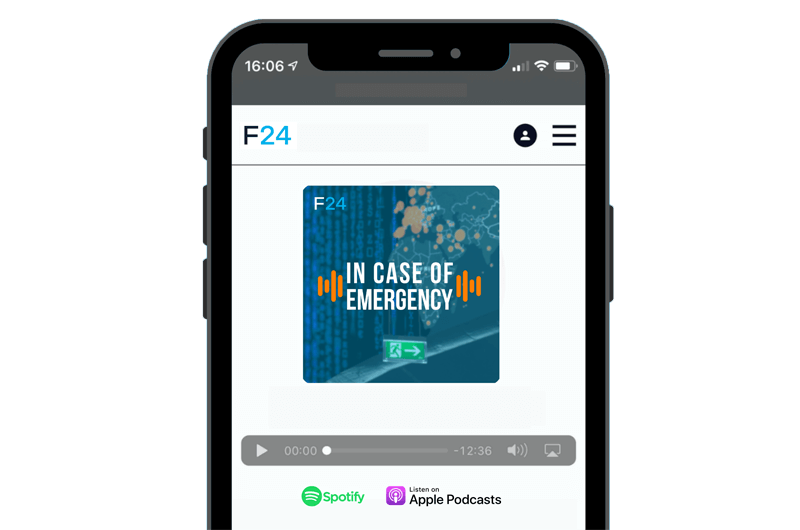
Nous pensons qu’il est important de partager les informations, les apprentissages et les meilleures pratiques. C’est dans cet esprit que nous avons créé “In Case of Emergency”, votre podcast en anglais sur la gestion de crise et les notifications d’urgence. C’est votre source d’informations précieuses sur la continuité des activités, les interventions d’urgence, les alertes publiques et bien plus encore.
John Davison, l’hôte de ce podcast, interroge des experts internationaux et des professionnels dans leurs domaines respectifs afin de partager leurs expériences, leurs conseils et leurs informations sur divers aspects de la gestion des incidents et des crises.
John dirige F-24 UK Ltd. et les opérations générales de F24 à Londres avec passion et dévouement, contribuant ainsi au succès des produits de F24 pour l’alerte et la gestion de crise à l’échelle internationale.
Sus perspicaces debates y charlas con expertos de todo el mundo también están disponibles en Spotify o Apple Podcast (En anglais uniquement).


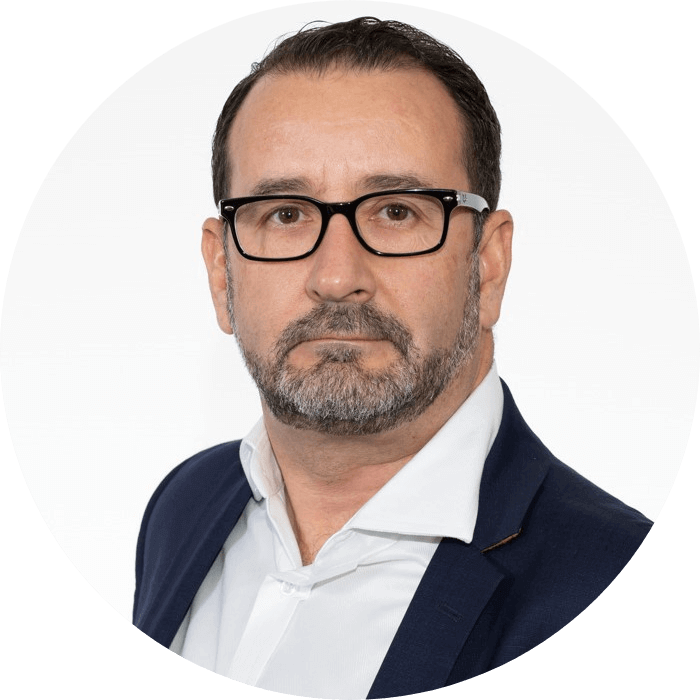
John Davison, Managing Director F-24 UK Ltd.
New Episode
Episode 47: Navigating Turbulence – Building Resilience in the Aviation Industry (Part II)
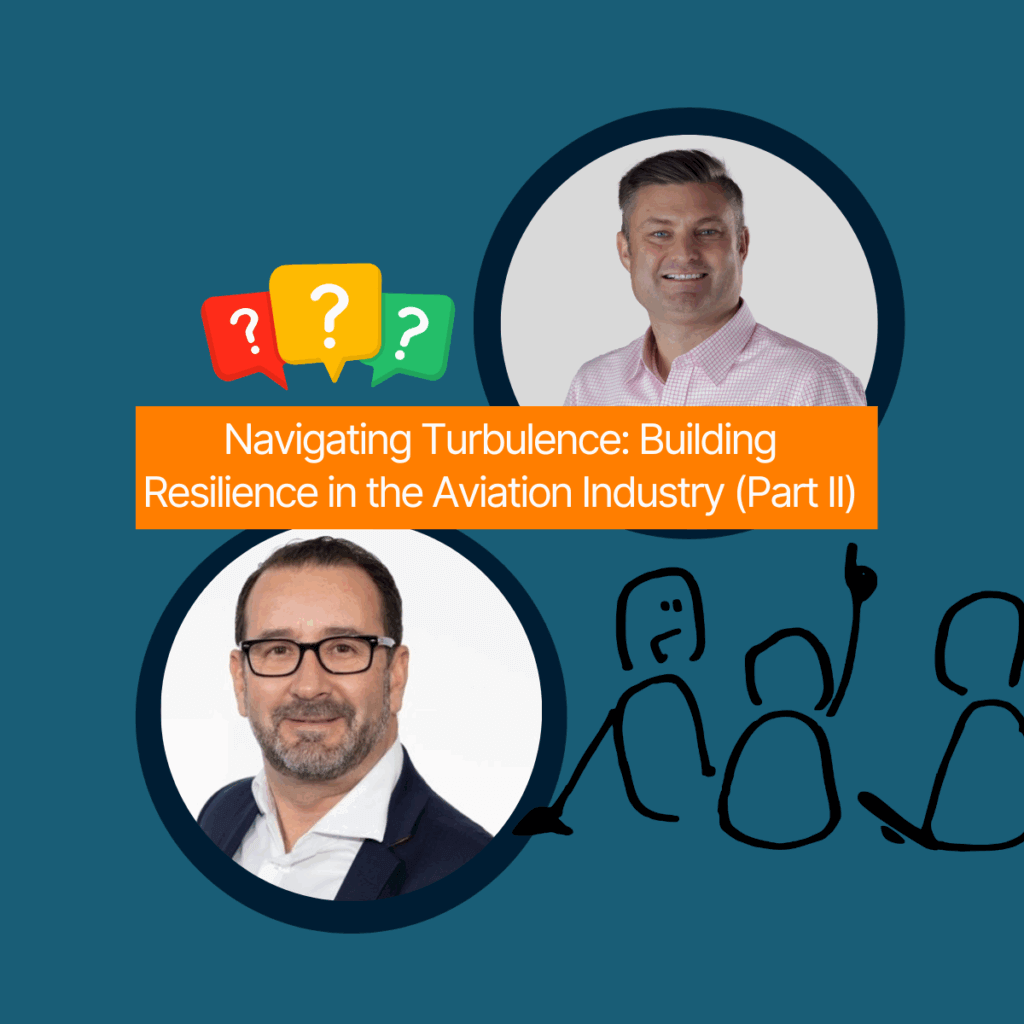
John and Richard
Dans cet épisode, John s’entretient avec Richard Drennan, responsable de la continuité des activités et de la réponse aux crises chez flydubai. Il a commencé sa carrière dans l’aviation au sol avec Menzies Aviation avant d’occuper des postes au sein de Titan Airways et British Airways au Royaume-Uni. En 2014, il a rejoint flydubai au sein de leur centre de contrôle du réseau après sa discipline d’origine de contrôle des opérations/répartition des vols. Depuis lors, il a progressé et occupé des postes dans les services aéroportuaires et la sécurité avant d’être chargé de diriger la continuité des activités et la réponse aux urgences pour l’organisation.
Outre ces fonctions, Rick occupe le poste de directeur des interventions d’urgence et est membre du groupe d’évaluation des menaces de l’entreprise.
01:17 You mentioned the Dubai floods last year was a black swan event. But what if these are more regular occurances due to the changing climate patterns?
04:56 In Terms of decision making in critical situations or times of crisis – how do you think leadership styles influence the outcome of a crisis?
06:12 A crisis isn’t the time to be developing relationships…
08:30 Rick, what advice would you give to organisations who are looking to build stronger crisis management frameworks?
14:47 What have you learnt by working in your profession that you may have adopted as a standard working practice or perhaps you even use it in your personal life?
Tous les épisodes du podcast en un coup d’œil (English Only) :

Marianne Brokjøb de Equinor
Episode 1: Train hard, fight easy – but why is it important to train and exercise?
Dans cet épisode, nous aborderons l’importance de la formation et découvrirons les défis auxquels les grandes entreprises sont confrontées ainsi que d’éventuels programmes et conseils en matière de formation.
2:11 Why is it essential to train and exercise, when there are well documented processes that have been well prepared?
6:13 What are the typical challenges that you face when training an exercising? What about a large company with many different geographic locations?
7:20 How about scenarios, what do you typically exercise during your training programs?
Episode 2: Certainty during insecure times: Efficient mass notifications with acknowledgements – what does that look like in practice?
Deux de nos collaborateurs présenteront différents exemples d’alerte de masse en Allemagne et en Espagne/au Mexique et décriront certains cas concrets réussis. Ils prodigueront également des conseils sur l’alerte de masse.
1:34 For which user cases or situations is mass alerting recommended?
2:46 In your opinion what are beneficial functionalities linked to alerting a large number of persons? (e.g. international alerting)
7:27 In terms of past incidents can provide some examples of notable past incident where mass notifications proved to be so successful.


Eske Ofner de F24 AG et Juan Manuel Gil de F24 Servicios de Comunicación S.L.U.

Martin Stamm de A3M
Episode 3: Safe travels: Keeping employees safe during work-related travels can be a significant challenge, which is why professional and real time risk monitoring is a must – but how?
Dans cet épisode, nous débattrons de l’impact du Covid-19 sur les déplacements professionnels et échangerons sur les évolutions et les recommandations en matière de sécurité des déplacements ainsi que sur la veille des risques dans un avenir proche.
1:52 How can a software help organisation to keep their employees safe when travelling?
3:25 How did COVID-19 impact risk monitoring and employee travel?
6:32 What is your recommendation and main aspects to consider in the near future in regards to employee travel safety?
8:10 Are there any other aspects that would benefit a business when it comes to monitoring global risk?
Episode 4: Digital task management – how to bring your plans to life?
Dans cet épisode, vous découvrirez les avantages de la gestion numérique des tâches dans le cadre d’un processus de gestion de crise ainsi que les aspects et les prérequis les plus importants d’un point de vue pratique.
1:32 What would you describe to be the most important aspect of crisis management?
3:40 What are the benefits of digital task management and what requirements are necessary? (e.g. checklists)
7:47 Can you recite recent examples of where one of your customers really exceled in using FACT24 CIM to deal with a critical situation?
10:03 What is your view in terms of operational resilience v crisis management, should organisations keep a clean line between day-to-day operations and real crisis incidents?

Kristian Pettersen de F24 Nordics AS

Dr. Sabine Schnabel, LL.M. (NYU), fondateur et PDG de BSH advisors
Episode 5: The role of compliance in crisis management – why is it an important aspect to integrate?
Cet épisode sur la conformité en situation de crise présentera différents exemples de crises qui interfèrent avec le rôle primordial de la conformité. Vous obtiendrez des recommandations sur la façon d’intégrer les politiques de conformité à votre processus de gestion de crise.
1:51 Why is it important for compliance leaders to be part of crisis management?
5:05 What challenges do compliances teams face in crisis situations, can you give us some examples?
8:17 How would you recommend integrating compliance policies into crisis management?
Episode 6: Reliable Information – how do you organise effective communication for a crisis situation?
Lors de cet épisode, nous décrirons ce qu’est un processus de communication réussi en cas de crise sur la base d’exemples récents. Notre experte en communication donnera des recommandations sur la façon d’appréhender la communication de crise.
1:45 Is there a secret miracle solution to successful crisis communications?
4:50 Can you recite some recent crisis situations that were handled particularly well or perhaps even badly in terms of communication?
7:02 What about the saying “say nothing to no-one” approach when should such an approach be adopted if at all?

Prof. Dr. Stefanie Heinecke de Fresenius

Benjamin Jansen de F24 AG
Episode 7: Comprehensive crisis management – So let’s now look at the future of F24: what does it look like?
Dans ce dernier épisode, nous parlerons davantage de F24, fournisseur européen leader en matière de gestion des crises et des incidents, et présenterons ce qui a changé au cours de l’année dernière, frappée par une pandémie mondiale. Enfin, nous aborderons l’importance d’être aidé des outils technologiques en cas de situation critique.
1:44 Tell us more about F24 the leading European solution provider in emergency notifications and crisis management?
3:30 How can technology assist organisations in managing crisis situations?
5:35 How has F24’s focus changed in the last year during the global pandemic crisis?
Episode 8: Enhancing Reputation through Crisis – how does effective media management work?
John Davison and Peter Barrett discuss the most important aspects of reputational management and why good media mangement can help to improve your reputation or even lead to invisible crisis for the public eye. Illustrated by remembering real examples of the past like the UK horse meat scandal or the Ratners Jewel PR crisis.
2:01:30 Could you give a quick introduction to Powerscourt and your role?
02:50 In regards to your experience, can you recite any example of good reputational crisis incidents that were managed successfully with the particular eye to the media management topic?
7:20 What are some challenging attributes to crisis management compared to business as usual?
10:18 It’s not so much the big impact, that you’re talking about, but something relatively slow burning and if it’s not dealt with it could turn into something bigger?
12:16 Do you remember Gerald Ratner’s example of a PR crisis?
14:27 What have you learned by working in your profession that you may have adopted as a standard working practice or perhaps which you even use in your personal life?
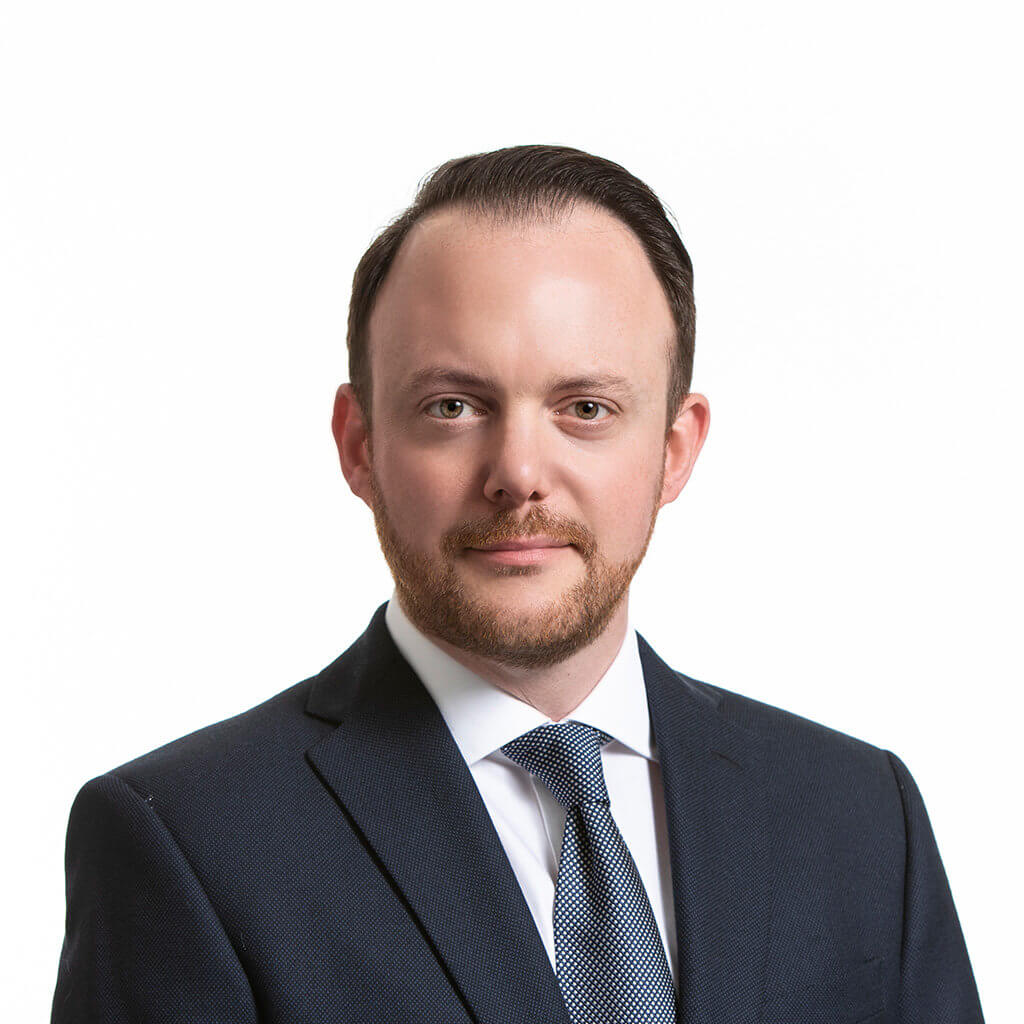
Peter Barrett from Powerscourt
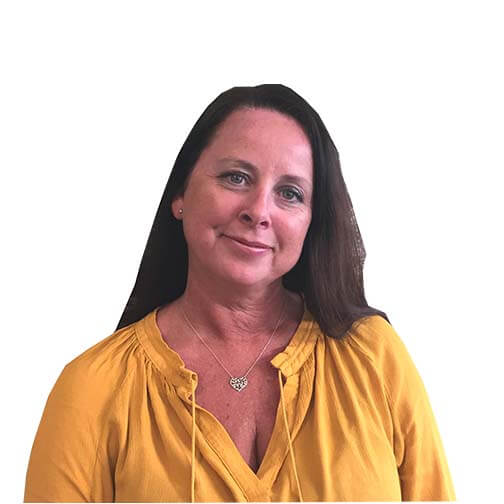
Carol Mackenzie, Group Head of Crisis Management and Business Continuity from TUI
Episode 9: Real-time Overview- Is task management the digital “Open Line”?
In this episode you’ll gain a deeper insight into how digital task management supports globally working organisation like the TUI Group. The interview with Carol Mackenzie also highlights the advantages and changes digital task management during the last years of the pandemic. Furthermore, the example of Hurricane Irma is used to illustrate the agility and abilities digital taks management offers.
2:16 From your crisis management experience, what are the key insights into practical use of task management for an organization when managing an emergency event or a data crisis event?
5:15 Over the past couple of years their have been some incidents that maybe raised the profile within TUI to bring together your teams. How was that handled during covid and with people working remote?
6:56 Can you recite any examples of where task management proofs to be crucial in certain situations?
9:40 Do you think there is a secret formula to ensure employees have a clear overview of crisis and can you provide a good example of it?
13:30 What have you learned by working in your profession that you may have adopted as a standard working practice or perhaps which you even use in your personal life?
Episode 10: Championing Business Continuity – What can we derive from research?
Rachael Elliott, Head of Thought Leadership at the BCI talks about the challenges and developments she has observed in years of researching in the field of Resilience. This episode deals with the upcoming scientific insights of the BCI for 2022 and the possible change that will occur in Business Continuity and Resilience. You will also gain a deeper inside into the latest Report on Emergency and Crisis Communications.
1:48 What is the BCI and what is the work like as a researcher?
4:12 Do you think there are any aspects of BC or CM that need more attention or may need more attention in the future?
6:24 You are talking to a lot of experts, industry professionals and organizations that have the challenging topic of being resilient. Do you have any particular observations or takeaways from somebody’s interviews maybe a reoccurring theme?
9:10 You mentioned earlier the Emergency and Crisis Management Report. In regard to that particular report, do you have any tips for the professionals listening based on some of the insights that have been gained?
12:16 Do you remember Gerald Ratner’s example of a PR crisis?
13:55 What have you learned by working in your profession that you may have adopted as a standard working practice or perhaps which you even use in your personal life?

Rachael Elliot Head of Thought Leadership
at the Business Continuity Institute
Luigi Martino, Head of the Center for Cyber Security and International Relations Study at University of Florence
Episode 11: Cyber Security and the human factor – a global challenge or individualistic?
Listening to this episode, you`ll attend an interesting conversation with Luigi Martino, Professor and Head of the Center for Cyber Security and International Relations at the University of Florence. He’s sharing his insights of working within the Global Commission on Stability of the Cyberspace and the importance of global cooperation in the field of Cyber Security. Furthermore, the challenges of secure IT systems in times of remote working and the human factor of cyber attacks are addressed.
2:09 You are a member of the Global Commission on the Stability of Cyber Space. Could you tell us a little bit more about that roll and what it is about?
6:30 What can organisations do, to minimize that particular risk?
7:44 Would that be Phishing Mails?
10:56 So Cyber Security is about people, it is about the individuals and about their awareness?
11:47 I know one of your current research focuses on a slightly different aspect of Cyber Security. Not for organisations, but about the overarching correlation of Cyber as a Space and indeed Outer Space. Tell us a little bit more.
16:10 What have you learned by working in your profession that you may have adopted as a standard working practice or perhaps which you even use in your personal life?
Episode 12: Informing Persons of concern – What are the important aspects of disaster response?
By discussing the sensitive topic of disaster response, this episode examines the importance of correct person of concern management. Abigail Pollard shares her experience in the aviation industry and outlines challenges in working internationally as well as the
2:17 Tell us a little bit about Blake Emergency Services, what do you do?
4:51 What can you share with us from your experience on how to best organise such a process?
9:15 How do you capture these critical/sensitive information?
10:56 What is the biggest challenge in terms of disaster response for organisations?
14:38 What have you learned by working in your profession that you may have adopted as a standard working practice or perhaps which you even use in your personal life?

Abigail Pollard, Managing Director at Blake Emergency Services
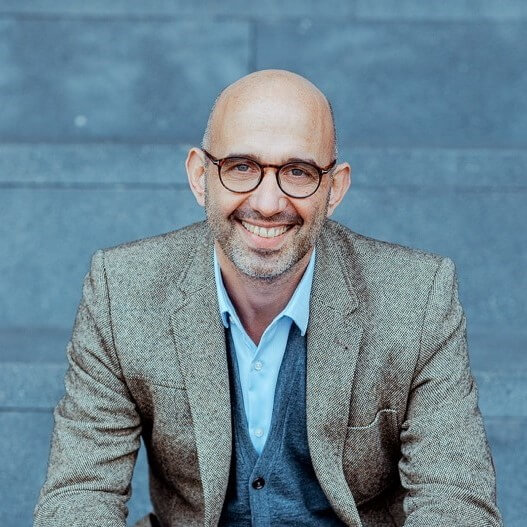
Markus Epner Head of Academy at F24
Episode 13: Virtual crisis management- a chance or problematic?
In this episode, you’ll gain a deeper inside on the field of crisis management. Speaking from his own experiences, Markus Epner talks about the changes that working remote brought to the field of crisis management. He outlines the advantages in managing a crisis virtual, but also shows the multiple challenges that this “new” form of crisis management poses.
2:04 Speaking from your experience, how has that change of working life (working remotely) impacted organisations, and how should they handle incidents and crisis events?
6:20 How would you define virtual crisis management?
7:28 Can you share any potential challenges or obstacles that might arise from a virtual work environment?
11:30 What about the future? Where do you see the new way of virtual crisis management going in future?
12:50 What have you learned by working in your profession that you may have adopted as a standard working practice or perhaps which you even use in your personal life?
Episode 14: Organizational Cyber Security – a Challenge to be mastered?
Eli Westad Garmann, talks about the need for testing and running cyber security incident response plans and what to consider in this context. She gives some great tips on what cyber security measures an organisation must include in a plan and shares her experience of important aspects that are sometimes overlooked in the early stages of planning, e.g. during purchasing a new digital software.
2:02 How can organizations protect themselves from the rising risk of cyber attacks and what role does testing and running incident response plans have to play?
5:07 What do you recommend organizations should do in regards to cyber security incident response plans?
5:52 How do you suggest organization to prevent the risk during such an incident?
7:52 Would you still typically recommend organizations to do a deeper dive beyond just the certification, or would you say the certification has kind of a security in the knowledge that an organization is well-prepared for the threat of information security?
8:57 From your experience Eli what would you offer as a best practice or alternate recommendations that you can share with us ?
10:03 What have you learned by working in your profession that you may have adopted as a standard working practice or perhaps which you even use in your personal life?
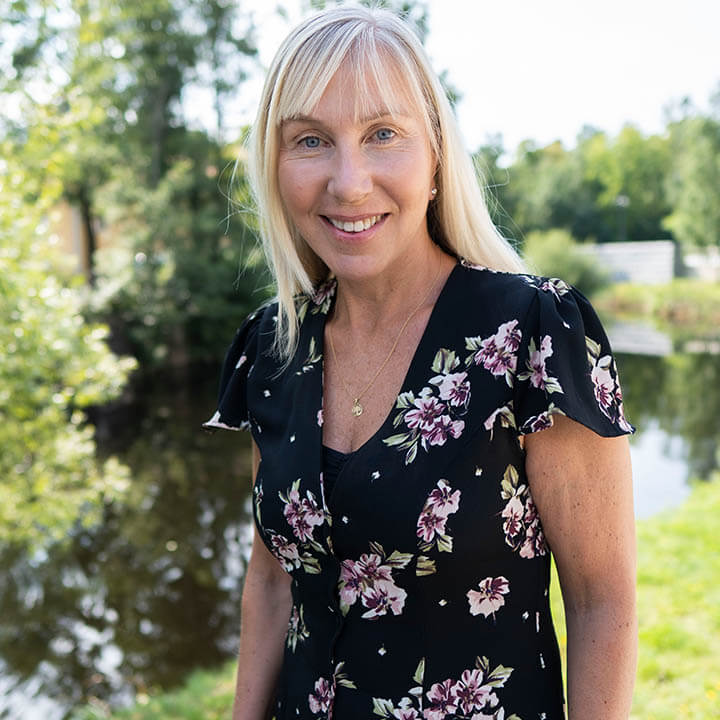
Eli Westad Garmann, Group Lead Cyber Security at Advansia

Jerry Allan, Director and Co-Founder CrisisVR
Episode 15: Empowering the front line – the key to a successful response plan?
Fort de ses nombreuses années d’expérience, Jerry Allan, directeur et cofondateur de CrisisVR, partage ses connaissances sur la manière de préparer votre personnel opérationnel à faire face à une situation inattendue et à l’impact d’événements ambigus. Tout en soulignant l’importance de responsabiliser la ligne de front, il détaille les compétences nécessaires et les aspects clés d’un plan d’intervention réussi.
1:51 When an incident occurs and the first responders have to work together with the emergency services, what challengeges arise and how can the resulting problems be prevented?
04:08 How do you collaborate in terms of a multitude of stakeholders, how do you bring all players into the same exercise?
06:09 What about the internal communication between the departements, especially between the strategic crisis management team and the operational front line. Can you recommend any basic strategies, perhaps concepts on how to set up the ideal process for all parties?
09:04 How would you suggest to really prepare the front line to deal with a really unexcepted crisis?
11:25 Going back to those simulations, how can you best put those plans into practices? Unannounced simulations or pre-planned simultations?
13:30 What have you learned by working in your profession that you may have adopted as a standard working practice or perhaps which you even use in your personal life?
Episode 16: Public warning systems – How do they contribute to public safety?
Dans cet épisode, Amélie Grangeat vous présente le domaine des systèmes d’alerte publique. Elle donne un aperçu des fonctionnalités, du cadre juridique mais aussi des défis, par exemple comment avertir les personnes qui n’ont pas accès à des dispositifs techniques?
2:13 Why is a public warning system so essential, and how is it applied around the globe?
4:10 And who would typically operate a public warning system and how does it work
5:35 How does it work ? How does everybody get that communication?
7:31 What is your experience of utilizing public warning systems within the lifecycle of a crisis, do you have any example where such a system really has proven itself in protecting lives?
9:31 How can you be certain that you reach everybody that needs to be alerted, in particular the old or young? How flexible is the system to go beyond reaching only to people with mobile phones?
12:25 What have you learned by working in your profession that you may have adopted as a standard working practice or perhaps which you even use in your personal life?

Dr. Amélie Grangeat, Senior Product Manager and Expert on public warning systems at F24

Nana Kalandarishvili, Manager at PWC and Expert in Geopolitics and Security
Episode 17: Geopolitical awakening of Corporate Security – a step towards crisis preparedness
Nana Kalandarishvili partage ses connaissances sur le thème des conflits géopolitiques et de la bonne gouvernance. Elle évoque l’impact des conflits géopolitiques sur les entreprises et leur bien-être. Elle donne également un aperçu de la manière dont les entreprises peuvent se préparer aux conflits géopolitiques majeurs.
01:43 Are cooperations able to prepare for the geopolitical crisis and their effect effectively?
02:26 How do companies have access to the expertise in geopolitical risks, it seems quite a specialist field?
04:43 Do you think it needs a dedactive role responsible for that on the security risk team?
06:55 What geopolitical scenarios do you foresee in the future? And how do you see this typical scenarious impacting different business sectors?
09:41 What are the key aspects to pay attention to for security professionals to prepare themselves for the best possible crisis management for the future?
11:41 What have you learned in your profession that you may have adopted in your own standard working practice or in your personal life?
Episode 18: Training Teams for trauma Response – Dealing with the aftermaths of a crisis
Brian Power partage ses connaissances acquises au cours de plus de 40 ans d’expérience en tant que responsable de la formation spécialisée au sein de la police britannique des transports. Il explique comment il a géré des événements de crise dramatiques qui ont eu un impact sur des vies et des individus, ainsi que sur ceux qui ont répondu aux incidents.
02:14 What are the differences between loss, trauma and the crisis?
04:00 What are the key recommendations that you would give to organisations on how they can be better prepared and making their teams more capable of handling traumatic crisis events?
5:45 What would you recommend being the most important aspect to consider for those responders when having to relay such tragic news?
08:40 Do you have any examples of perhaps some very well executive or perhaps some very poor executive communication in any of the work you have been?
12:10 What you may have learned in your profession that you may have adopted in your own business life or perhaps in your own personal life.

Brian Power, Crime Training Manager, British Transport Police

Episode 19: The Holiday Episode Part 1
Rétrospective de l’année
Il est presque temps de conclure l’année. L’année 2022 a été riche en événements – des événements politiques mondiaux aux crises qui en découlent, nous avons assisté à de nombreux bouleversements. Peut-être pour refléter cela, notre panel d’experts pour le podcast de la Saison 2022 a parlé des implications de ces événements et de la façon de rester résilient pour les temps à venir. Dans cet épisode spécial, nous vous présentons les points forts de l’année.
Featuring in this episode:
01:17 Peter Barrett from Powerscourt
09:20 Carol Mackenzie from TUI Group
13:45 Rachael Elliot Head of Thought Leadership at the Business Continuity Institute
18:47 Luigi Martino, Head of the Center for Cyber Security and International Relations Study at University of Florence
22:50 Abigail Pollard, Managing Director at Blake Emergency Services
Episode 20: The Holiday Episode Part 2
Rétrospective de l’année
Il est presque temps de conclure l’année. L’année 2022 a été riche en événements – des événements politiques mondiaux aux crises qui en découlent, nous avons assisté à de nombreux bouleversements. Peut-être pour refléter cela, notre panel d’experts pour le podcast de la Saison 2022 a parlé des implications de ces événements et de la façon de rester résilient pour les temps à venir. Dans ce deuxième épisode spécial, nous vous présentons les points forts de l’année.
Featuring in this episode:
01:16 Markus Epner Head of Academy at F24
05:27 Eli Westad Garmann, Group Lead Cyber Security at Advansia
09:17 Jerry Allan, Director and Co-Founder CrisisVR
13:13 Amélie Grangeat, Senior Product Manager and Expert on public warning systems at F24
18:51 Nana Kalandarishvili, Manager at PWC and Expert in Public Warning
23:22 Brian Power, Crime Training Manager, British Transport Police


Heidi Snow, Founder / CEO – AirCraft Casualty Emotional Support Services (ACCESS)
Episode 21: Navigating Grief – Understanding How to Support Survivors of Personal Loss
Avertissement sur les déclencheurs : Nous allons aborder des sujets qui impliquent la mort et la perte soudaine d’êtres chers, sur la base d’expériences réelles, de pertes tragiques et de catastrophes passées. Si l’un de ces sujets est déclencheur pour vous, veuillez sauter cet épisode.
Heidi Snow s’occupe depuis plus de 25 ans de milliers de personnes touchées par des catastrophes aériennes et des pertes soudaines. En 1996, Heidi a fondé l’organisation à but non lucratif AirCraft Casualty Emotional Support Services (ACCESS – accesshelp.org) pour s’assurer que personne ne subisse la solitude, l’isolement et le chagrin qu’elle a dû vivre après le malheureux accident aérien qui a coûté la vie à son fiancé.
02:20 Heidi is the CEO and founder of ACCESS which has been providing disaster breavement support to those who have survived or lost loved ones in aviation tragedies. Tragically, Heidi, it started with a very personal experience for you.
13:20 So the empathy, the experience of going through the same lot is an important factor for the volunteers you have for the organisation?
16:20 What recommendation do you have for crisis responders to help them prepare better for bereaving individuals?
23:30 What have you learnt personally from working in your role that you have adopted through the tragedy you have experienced?
Episode 22: The NIS2 Directive – How does the New Directive Help Resilience of Critical Infrastructure?
Alessandro travaille comme spécialiste de la protection des infrastructures critiques, de la résilience et de la cybersécurité depuis 2004. Il a été agent scientifique au Centre commun de recherche de la Commission européenne, où il a travaillé sur une politique et une initiative visant à soutenir le programme européen de protection des infrastructures critiques (EPCIP). Alessandro est également chargé de cours en informatique juridique à la faculté de droit de l’université de Lecce, et il est également chargé de cours sur la protection des infrastructures critiques au Centre d’excellence de l’OTAN. Enfin, Alessandro est également le cofondateur de la recherche interdisciplinaire sur la sécurité et la résilience des infrastructures à l’université de Salento, en Italie.
03:00 – What does the directive on security and network information systems, better known as the NIS directive, aim to achieve?
5:00 – What are the implications of NIS1 vs. NIS2, and more specifically what does it mean for the member states?
6:25 – What are the immediate next steps in closing down NIS1 and moving to NIS2?
8:22 – How far does this sort of trickle down from essential government to local government and potential external third parties?
10:04 – How do you think these new directives are going to facilitate crisis management and resilience?
13:11 – What have you learned by working in your profession that you may have adopted as a standard working practice either in your personal life or perhaps your professional life?

Alessandro Lazari, Senior Key Account Manager, F24 AG
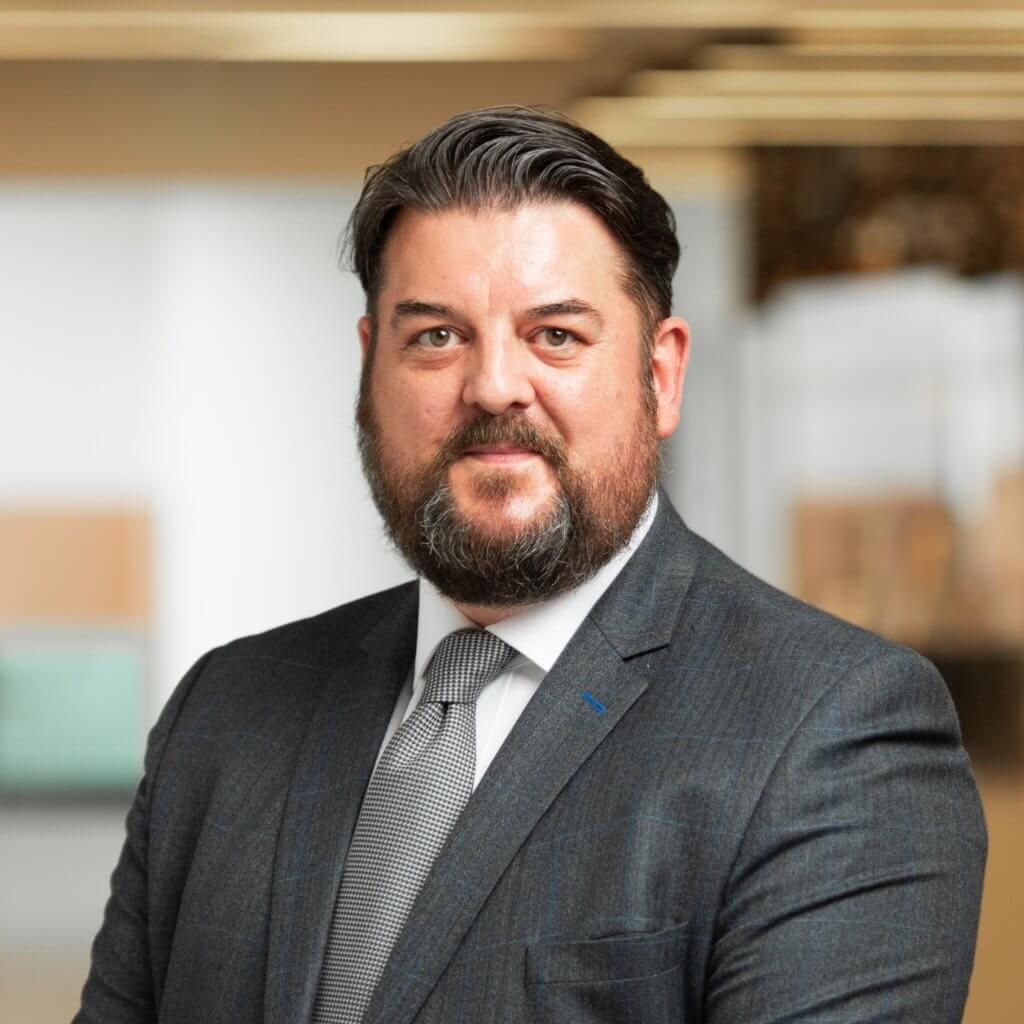
Graham Brown, Manager – Crisis and Response, Petrofac Training Services
Episode 23: Connecting Global Crisis Teams – The Success of Hybrid Crisis Management
Graham est l’un des praticiens les plus expérimentés de l’industrie pétrolière et gazière britannique en matière de préparation et de réponse aux urgences, avec plus de 30 ans d’expérience. Il a soutenu des entreprises du secteur de l’énergie au Royaume-Uni et à l’étranger, en Malaisie. Il a personnellement répondu à une centaine d’urgences réelles, dont de multiples accidents médicaux ou mortels, des incendies et des explosions, des marées noires, des collisions de navires, l’évacuation et l’abandon d’installations, l’embarquement de manifestants et des prises d’otages. Entre deux urgences réelles, il travaille avec une équipe de praticiens basée à Aberdeen, au centre de services d’intervention d’urgence de Petrofac, afin de concevoir et d’offrir aux clients des programmes de préparation à la gestion des incidents et des crises dans le monde entier.
02:47 How would you define what is a professional responder?
05:03 In regards to the pandemic, how has that disrupted business models across all industries and how do you think that specific crisis centres like yours, Petrofac is impacted?
07:35 During the pandemic you took everything from your physial environment in your center and you just virtualized it using tools and technologies such as teams. Perhaps the software solution from F24 as well helped you to achieve it?
08:42 If we want to look at an ultimal crisis responce. Is there a way that you can define it or how would it be set up?
11:37 How does the industry requirements impact your prepadness or the organizations preparedness?
14:20 What have you learned by working in your profession that you may have adopted as a standard working practice either in your personal life or perhaps your professional life?
Episode 24: Responding to Trauma – How Crisis Teams should Train for Trauma Response
Cath Kerr est membre associé de la British Psychological Society, psychologue conseillère agréée et cofondatrice de KRTS international. Cath a commencé sa carrière dans le secteur bénévole en travaillant avec des personnes ayant subi des violences domestiques. Depuis, elle s’est spécialisée dans la gestion de l’impact psychologique des incidents critiques, avec une maîtrise en traumatisme psychologique et environ 25 ans d’expérience de travail avec des organisations à haut risque et des clients souffrant de toute la gamme des réactions à la crise et au traumatisme, du stress aigu au syndrome de stress post-traumatique (SSPT). Elle est consultante en EMDR, auteur de publications internationales et présentatrice.
03:04 How would you best define what trauma actually is?
04:40 What sort of symptoms should first responders look for while dealing with traumatic or critical signs?
06:21 Some people can get withdrawn, perhaps a little bit quiet, and maybe are not showing the obvious signs. How would you recommend trying to look after those?
07:05 What is the primary function that crisis and trauma responders do and what is the rational behind that?
09:00 What should be the first line of action when dealing with trauma response and why?
11:11 What have you learned by working in your profession that you may have adopted as a standard working practice either in your personal life or perhaps your professional life?

Cath Kerr
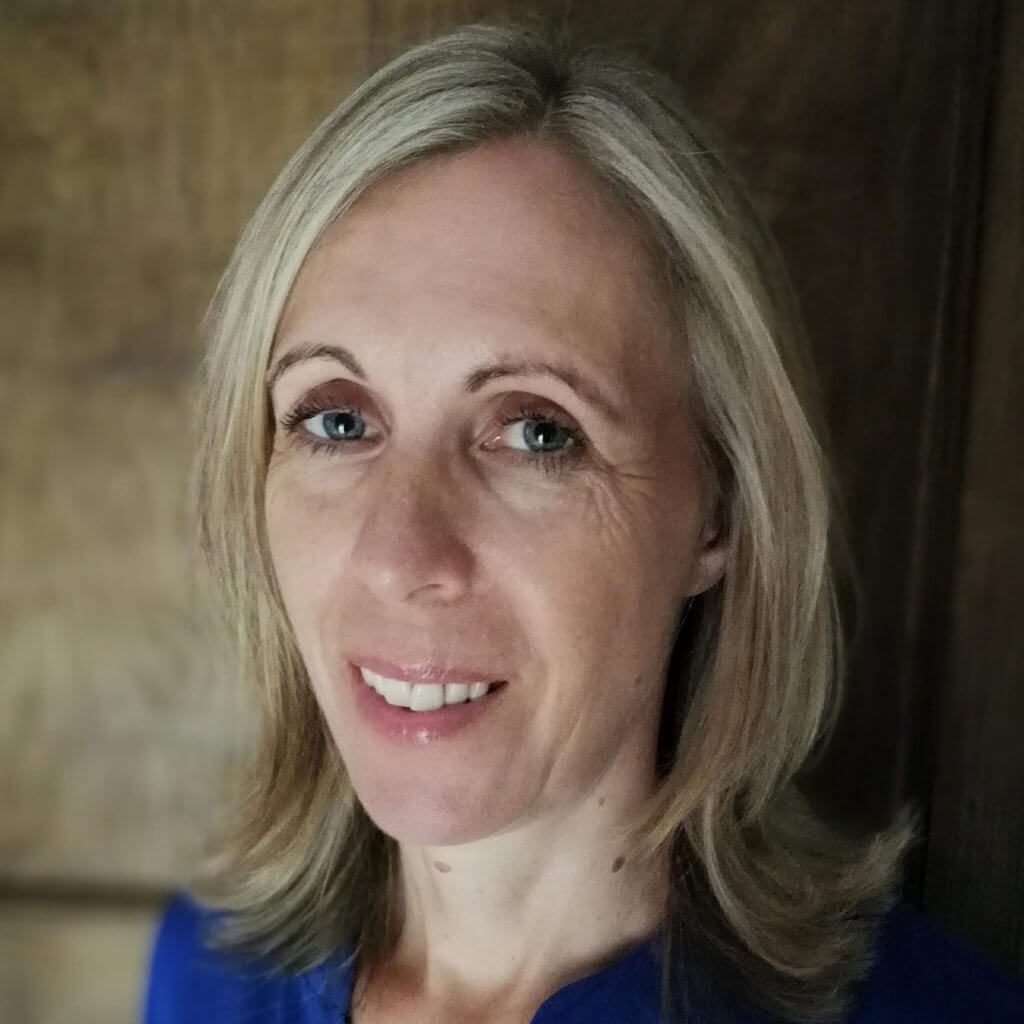
Dr Liz Royle – Director at KRTS International
Episode 25: Responding to Trauma – Part 2- How Crisis Teams should Train for Trauma Responset
Dans le prolongement de notre dernier épisode, nous approfondissons la question de la réponse aux traumatismes, de son impact sur les intervenants et de la manière dont ils peuvent se préparer au mieux à leur rôle. Le docteur Liz Royle a plus de 25 ans d’expérience dans le domaine de l’aide aux organisations, pour préparer et répondre stratégiquement à l’impact sur les êtres humains sur le lieu de travail en cas de crise et de traumatisme. En tant que psychothérapeute expérimentée en traumatologie, Liz a également beaucoup travaillé avec des clients souffrant de stress post-traumatique et de réactions de crise, notamment à la suite de décès multiples, d’agressions et d’accidents graves, d’actes de terreur et de catastrophes naturelles. Elle est l’un des membres fondateurs de la UK Psychological Trauma Society et a publié de nombreux ouvrages à l’échelle internationale.
Son entreprise, KRTS International, propose une gamme de solutions numériques primées pour la gestion des risques posés par les crises et les traumatismes sur le lieu de travail.
03:13 Why do you think despite having enormous amounts of information available on crisis probabilities is it really difficult for people to talk about crisis preparedness?
06:30 Could you elaborate a little bit more on that psychological impact for the members of crisis management team? What are the signs and symptoms?
10:20 It must be a real challenge for a crisis team in terms of levels of authority. And maybe there is a natural assumption that those leaders will be the ones that are the best coping with the situation but perhaps it is not the case?
10:45 How do you think we should best support the crisis management teams when they are running the operations? What are their additional needs?
12:52 When do you think it is the right time for them to receive that support?
16:04 What have you learned by working in your profession that you may have adopted as a standard working practice either in your personal life or perhaps your professional life?
Episode 26: Geopolitical Issues of of the Western Balkans – How can Businesses prepare for the challenges?
Robert Mikac est professeur associé en sciences politiques, spécialisé en sciences sociales, à l’université de Zagreb. Sa carrière a débuté par un poste de commandant de compagnie de la police militaire, où il a servi en tant que premier lieutenant et s’est vu confier la tâche cruciale de superviser et de protéger le ministère de la défense, 24 heures sur 24 et 7 jours sur 7, au sein de la police militaire.
L’expertise du Dr Mikac s’étend à divers domaines, puisqu’il a été employé par la Direction nationale croate de la protection et du sauvetage en tant que chef du secteur de la protection civile et commandant de la protection civile de la République de Croatie. Il est également un membre renommé du Conseil pour la sécurité intérieure du président de la République de Croatie.
En tant qu’universitaire reconnu, M. Mikac s’est spécialisé dans divers domaines, notamment les relations internationales, la sécurité nationale et internationale, la gestion de la sécurité, la gestion des crises et des catastrophes, la protection civile, la protection et la résilience des infrastructures critiques, ainsi que les migrations et la sécurité.
02:26: What are the challenges faced by countries in the western Balkans in particular regarding political, economic and security situation?
06:02: In your opinion which of those is the main challenge in particular looking at geopolitical tensions and how this can be taken into account when discussing how organisations can do business in the area and be more prepared?
10:02: Would there be a tendency for these organisations to align to European or the international standards?
11:23: How do you see the current conflict in the Ukraine? How does that affect political and security situation in the western Balkans?
14:03: What is the median term perspective on the political,economic and security measures. What sort of the future opportunities should be considered when taking this into consideration?
16:21: What have you learned by working in your profession that you may have adopted as a standard working practice either in your personal life or perhaps your professional life?
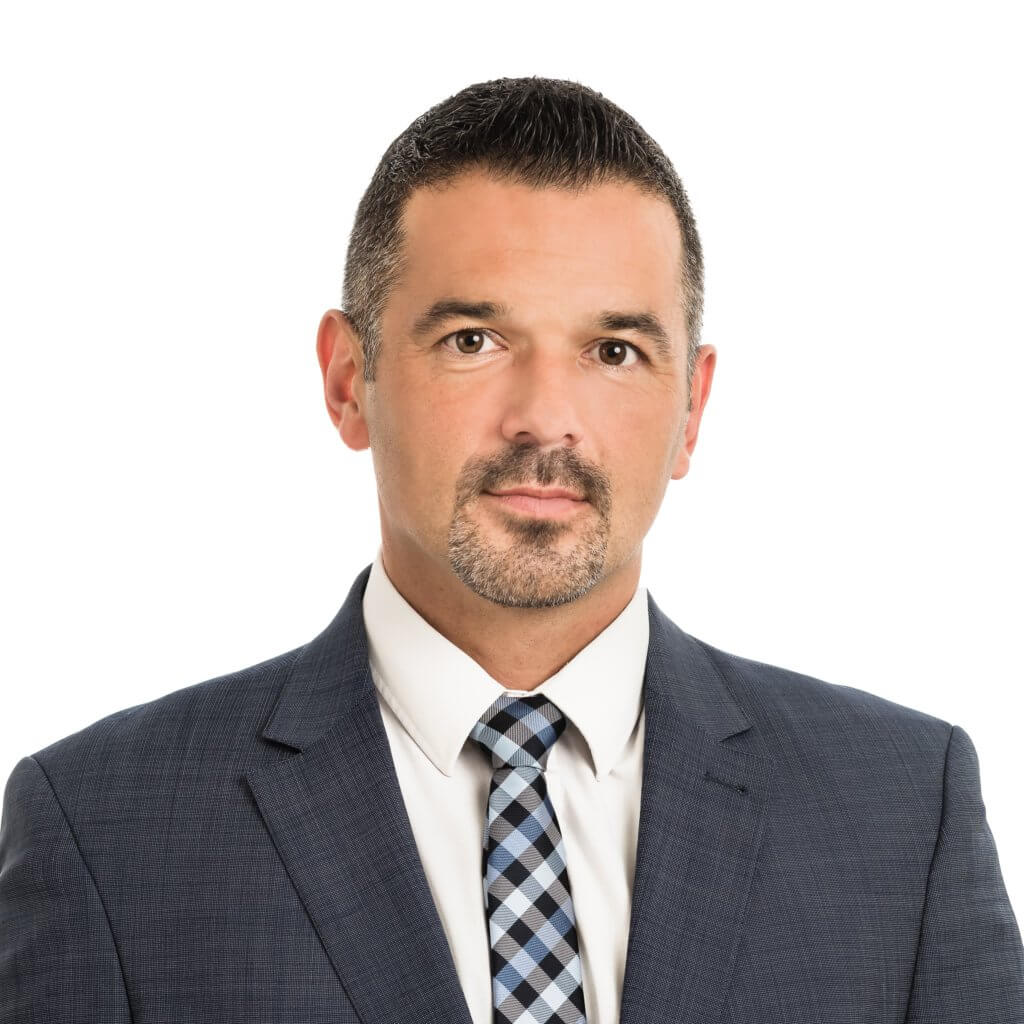
CPhD Robert Mikac
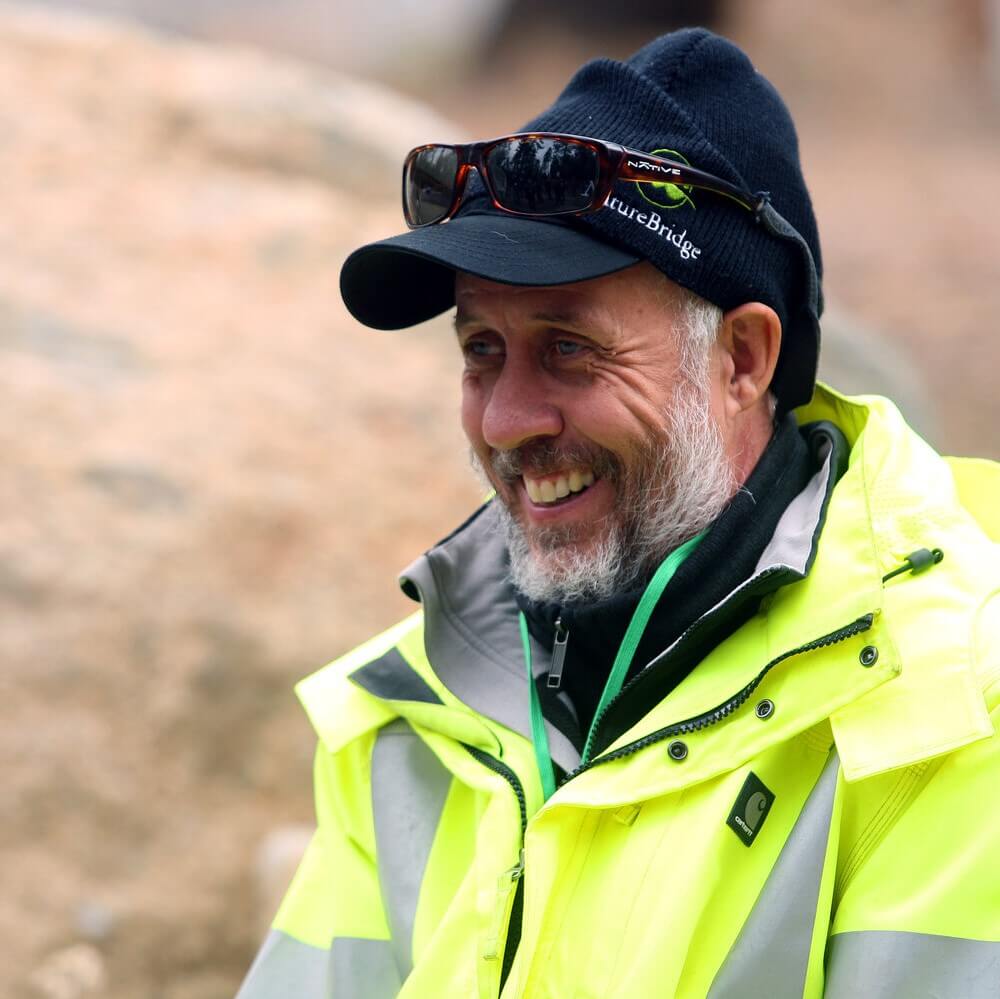
Moose Mutlow
Episode 27: Compassion in Crisis – Understanding the Psychological Dimensions of Emergencies
Moose a près de quarante ans d’expérience en matière d’éducation traditionnelle et alternative dans le monde entier. Il a dirigé des formations d’instructeurs Outward Bound de 58 jours dans les Appalaches, a été directeur adjoint dans le désert du Kalahari, a géré une concession de plage sur la Méditerranée, a traversé des forêts tropicales australiennes avec des élèves de collège, a plus de 2000 jours d’instruction sur le terrain dans un environnement sauvage, et est récemment revenu d’un programme de canoë pour les anciens combattants dans le golfe du Mexique.
Depuis 2002, Moose est membre et formateur principal de Yosemite Search and Rescue, où il travaille en tant que technicien et au sein du commandement des incidents, dans l’une des opérations de recherche et de sauvetage les plus actives au monde.
Moose travaille actuellement pour NatureBridge dans le parc national de Yosemite en tant que directeur principal de projets pour la planification, la conception et la construction du Centre national des sciences de l’environnement.
Moose a été le formateur principal des agents de liaison avec les familles pour le Service des parcs nationaux et a dispensé des formations au personnel des parcs nationaux de Yosemite, Arches, Smokey Mountains, Olympic, Rocky Mountain, Theodore Roosevelt, Joshua Tree, Sequoia Kings, Point Reyes, Lassen, Teton et Yellowstone.
02:59 Can you tell our audience a little bit more about all that you do for family liaison support and in particular rescue operations?
04:10 In terms of defining that emergency because it can be relative from one person´s emergency to another person´s emergency. What would you define as a full search and rescue operation emergency?
05:08 And managing those emergency situations would you be fair to say that you try to direct and steer the situation as best you can without it escalating into a broader ineherent drama and more critical situation?
06:25 What do you think families need when they face a crisis in the resulting trauma?
08:02 You talked a lot about distress continium in your work. Can you elaborate a little bit further in terms of the context of that in the psychological first aid?
12:01 What have you learned by working in your profession that you may have adopted as a standard working practice either in your personal life or perhaps your professional life?
Episode 28: 2023 Summer Special Episode
Nous vous souhaitons la bienvenue dans cet épisode spécial où nous abordons une question très particulière : “Qu’avez-vous appris dans votre profession que vous avez peut-être adopté dans votre pratique professionnelle normale ou dans votre vie personnelle ?
Nous vous invitons à écouter les profondes connaissances que nos invités ont tirées de leur profession et qui ont façonné leur vie.
Dans cet épisode :
00:15 Alessandro Lazari, Senior Key Account Manager, F24 AG
02:24 Graham Brown, Manager – Crisis and Response, Petrofac Training Services
05:28 Cath Kerr, associate fellow of the British Psychological society, a charted counseling psychologist, cofounder of KRTS international
06:40 Dr Liz Royle – Director at KRTS International
08:55 PhD Robert Mikac, Associate Professor in the field of Political Science, International author
10:20 Moose Mutlow – Family Liaison Officer trainer, Swiftwater Rescue practitioner and author
11:26 Heidi Snow, Founder / CEO – AirCraft Casualty Emotional Support Services (ACCESS)
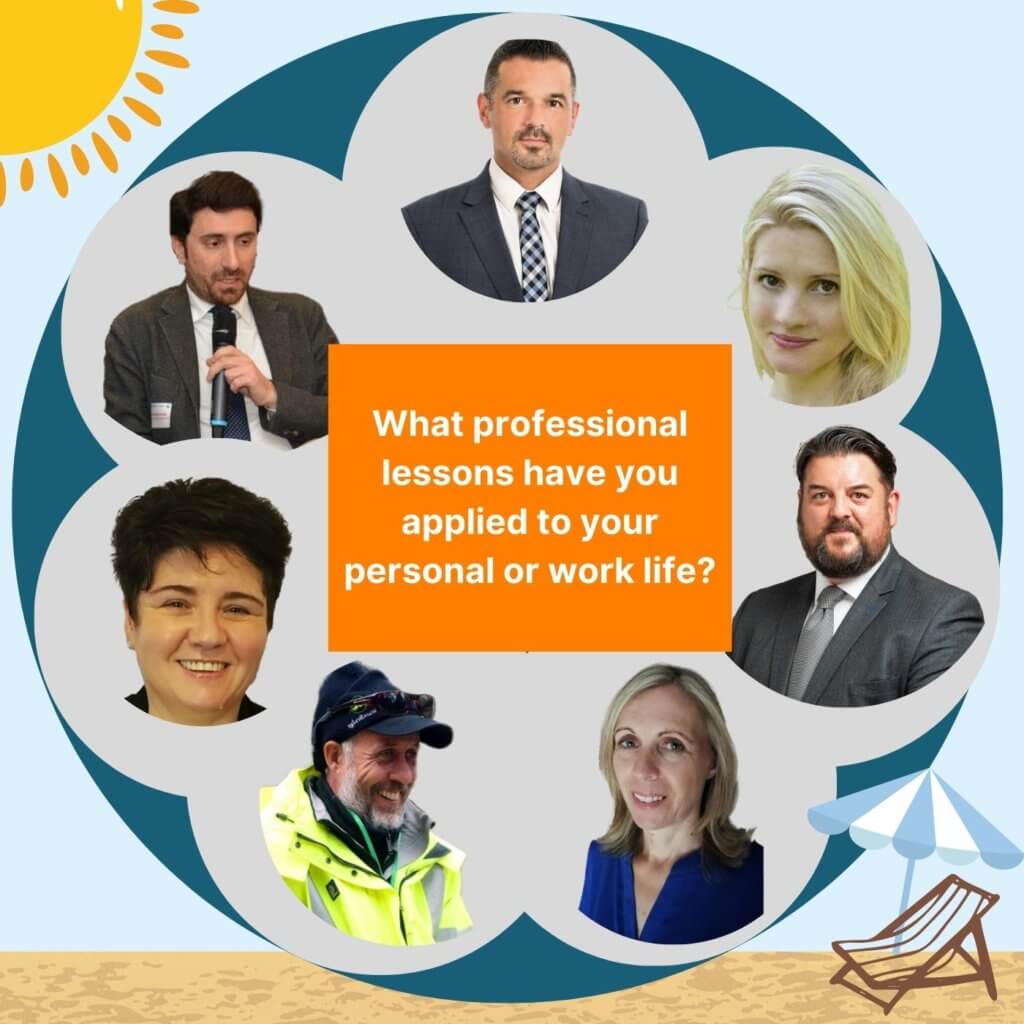
CPhD Robert Mikac

Stefanie Hach, Head of Sales & Marketing, F24 Luxembourg
Episode 29: Top Trends in Cyber Security – And How the Field can Grow
Stefanie Hach travaille pour F24 Luxembourg. Elle est titulaire d’une maîtrise en gestion de l’European Business School et a une expérience dans le conseil aux entreprises pour les services numériques en travaillant avec de nombreuses entreprises Fortuned 500. Stefanie a rejoint F24 en 2017 et a depuis appris son métier dans la gestion de crise aux côtés du fondateur de F24, Christian Götz. Stefanie tient l’équipe commerciale de F24 Luxembourg et elle est responsable de l’établissement et de la direction de toutes les activités de vente et de marketing au Luxembourg et aussi aux Pays-Bas. Stefanie est également membre du conseil d’administration de Women Cyber Force, une ONG qui soutient les femmes dans l’industrie technologique et vise à accroître la présence féminine dans le domaine de la cybernétique.
02:21 What are the top trends in cyber risk for the next few years ahead?
03:45 And in regards to the growing trend of internet of things – So if we combine it with the cybersecurity, is it something we need to have a closer look at?
05:50 Why is the female presence in cybersecurity so little today?
07:48 Do you think the cybersecurity industry needs a change for women to become more engaged within opportunities?
08:50 What have you learned by working in your profession that you may have adopted as a standard working practice either in your personal life or perhaps your professional life?
Episode 30: Alerting everywhere, at any time: Emergency Warning Service
Dans cet épisode, deux experts de premier plan, Amélie Grangeat et Laurent Arzel, nous expliquent comment l’EWSS révolutionne la manière dont nous répondons aux situations d’urgence en tirant parti de la puissance de la technologie satellitaire. Amélie est chef de produit senior chez F24 et experte en systèmes d’alerte publique. Elle a déjà participé à notre podcast. Elle s’entretient avec Laurent Arzel, chef du projet de navigation de TELESPAZIO. Écoutez-les parler de la façon dont la technologie rend les systèmes d’alerte publique plus efficaces pour couvrir tous les types de scénarios de crise.
03:46 Could you please present the Galileo constellation and the GNSS signal ?
06:26 Is this Galileo signal compatible with all smartphones in Europe ?
10:15 Could you please present the Stellar project, its objectives and the consortium ?
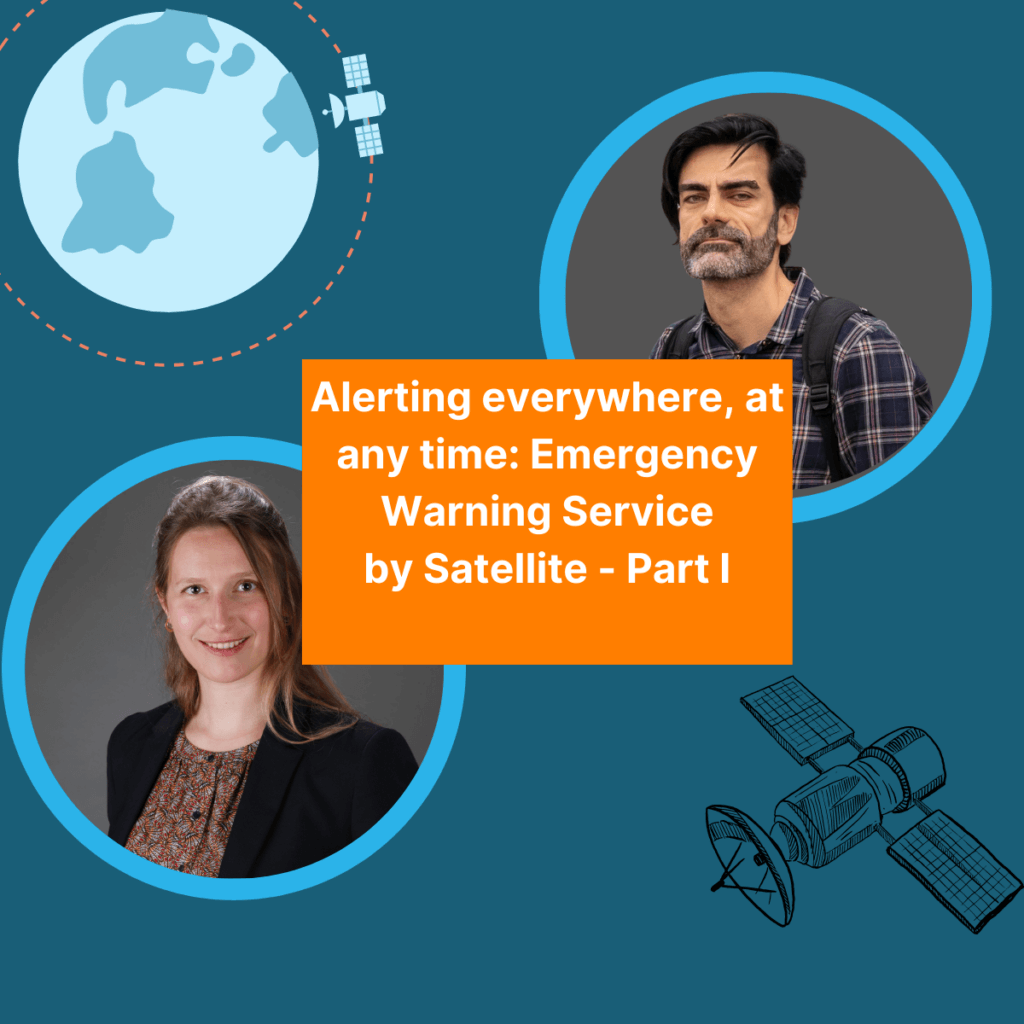
Amélie Grangeat, Senior Product Manager and Expert on public warning systems at F24 & Laurent Arzel, Navigation Project Leader, TELESPAZIO
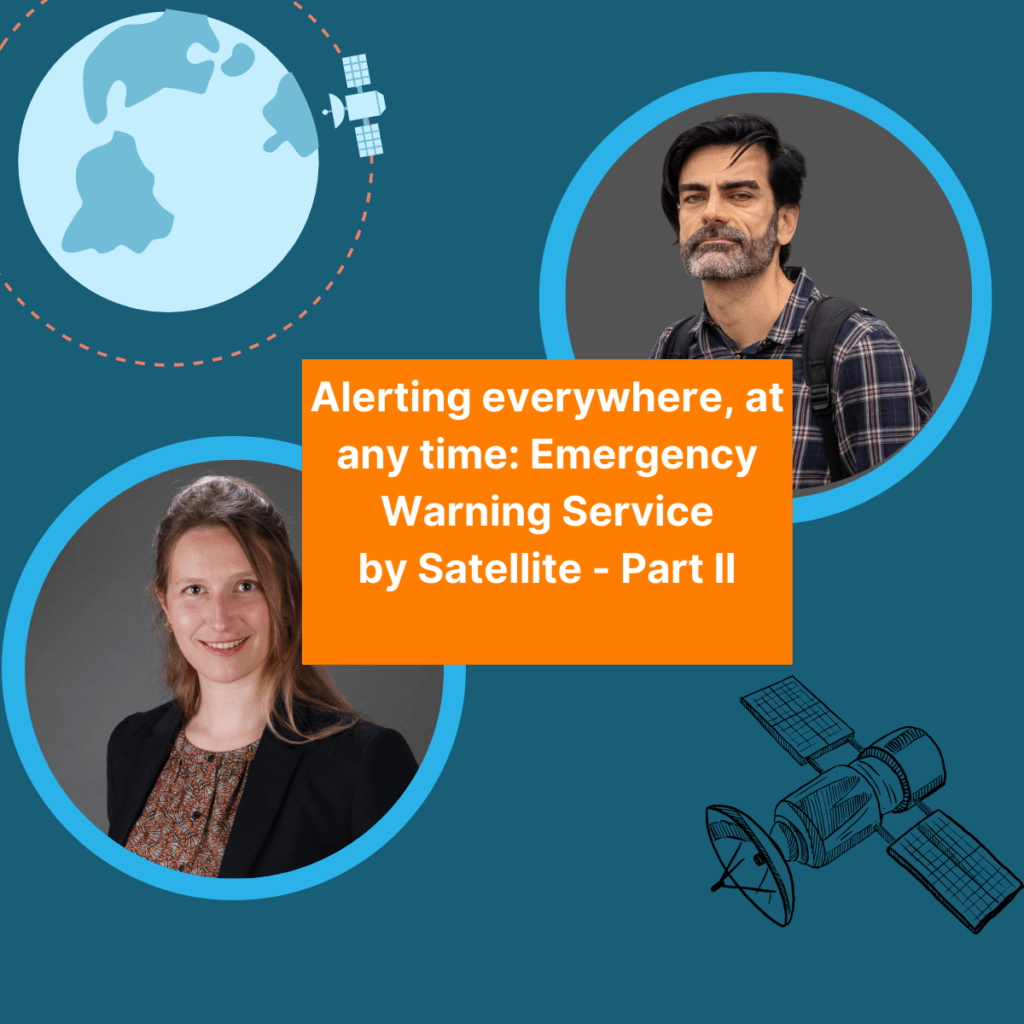
Amélie Grangeat, Senior Product Manager and Expert on public warning systems at F24 & Laurent Arzel, Navigation Project Leader, TELESPAZIO
Episode 31: Alerting everywhere, at any time: Emergency Warning Service
Dans cet épisode, deux experts de premier plan, Amélie Grangeat et Laurent Arzel, nous expliquent comment l’EWSS révolutionne la manière dont nous répondons aux situations d’urgence en tirant parti de la puissance de la technologie satellitaire. Amélie est chef de produit senior chez F24 et experte en systèmes d’alerte publique. Elle a déjà participé à notre podcast. Elle s’entretient avec Laurent Arzel, chef du projet de navigation de TELESPAZIO. Écoutez-les parler de la façon dont la technologie rend les systèmes d’alerte publique plus efficaces pour couvrir tous les types de scénarios de crise.
08:42 What are the next steps/obstacles to remove so that this project goes live ?
10:38 What have you learned by working in your profession that you may have adopted as a standard working practice either in your personal life or perhaps your professional life?
Episode 32: Navigating the Supply Chain Act- Key Considerations for Business Compliance
Roland Pulfer, un entrepreneur chevronné qui a plus de 30 ans d’expérience et qui se concentre sur la gouvernance, le risque et la conformité. L’épisode porte sur la loi sur la chaîne d’approvisionnement, un défi réglementaire pour de nombreuses entreprises. Roland nous éclaire sur sa portée mondiale, ses implications significatives pour les entreprises ainsi que les défis qui peuvent en découler, comme par exemple les chaînes d’approvisionnement complexes, les contraintes de ressources au sein des entreprises et la nécessité d’une diligence raisonnable complète.
02:09 Compared to other regulations of the past, how do you see the EU Supply Chain Act? What are its implications and requirements?
04:47 Which companies fall in the scope of the Supply Chain Act? What are the impacts on international companies?
08:15 What are the practical consequences for businesses?
10:45 What obstacles may arise for businesses during the implementation of these guidelines?
13:15 What advice would you give to companies obliged to comply with the Supply Chain Act?
14:40 What have you learned by working in your profession that you may have adopted as a standard practice either in your personal life or perhaps your professional life?

Guest Speaker: Dr. Roland Pulfer, Founder of Business-DNA Solutions GmbH and GRC Expert
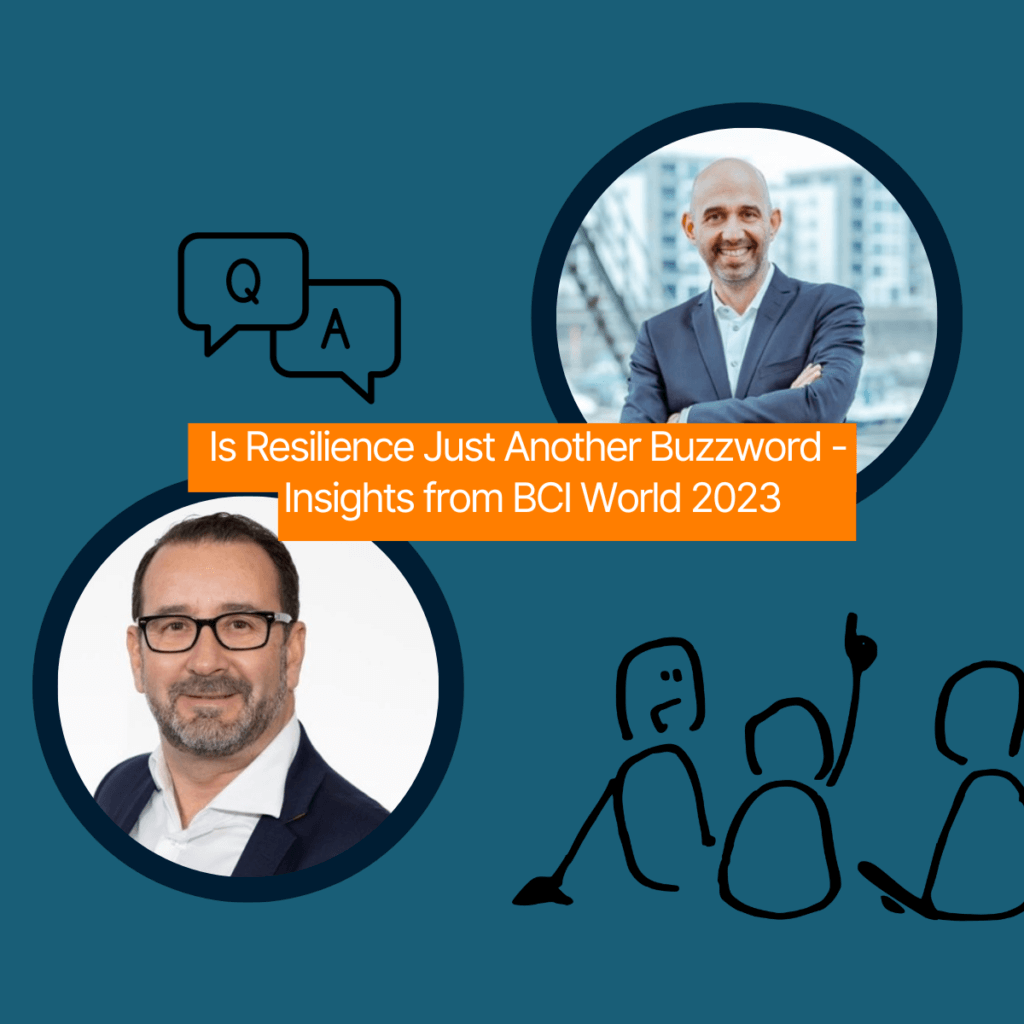
Markus Epner & John Davison
Episode 33: Is Resilience Just Another Buzzword – Insights from BCI World 2023 – Part I
John est en conversation avec :
Markus Epner – Chef de l’Académie chez F24 AG. Markus possède une grande expérience en matière de sécurité et de gestion de crise. Il a servi en tant qu’officier des forces spéciales pendant les guerres de Bosnie et du Kosovo et a occupé des postes de direction dans le secteur des entreprises pendant plus de vingt ans, principalement chez Lufthansa et Boehringer Ingelheim. Markus est diplômé en gestion de la sécurité et des crises de Kiel et en études sur la sécurité et les crises de l’école administrative de la police du Schleswig-Holstein.
5:01 People were really interested in holistic software solutions
08:55 There’s a hurricane that’s come over the BCI world which no longer talks about Business Continuity but about Resilience
10:57 Innovation Resilience, that is a term I have never heard before – where you are continuously inovating
15: 30 There’s this fear that Resilience is hardly attracting attention anymore because it’s so overused
Episode 34: Is Resilience Just Another Buzzword – Insights from BCI World 2023 – Part II
John est en conversation avec :
Markus Epner – Chef de l’Académie chez F24 AG. Markus possède une grande expérience en matière de sécurité et de gestion de crise. Il a servi en tant qu’officier des forces spéciales pendant les guerres de Bosnie et du Kosovo et a occupé des postes de direction dans le secteur des entreprises pendant plus de vingt ans, principalement chez Lufthansa et Boehringer Ingelheim. Markus est diplômé en gestion de la sécurité et des crises de Kiel et en études sur la sécurité et les crises de l’école administrative de la police du Schleswig-Holstein.
1:14 In the past we had every few years one crisis, then we had polycrisis… and now we are in the era of primacrisis
4:23 Markus, what’s your view of what’s the future of Resilience?
8:15 It’s so ridiculous that 50 years after tthe crisis scenario of Apollo 13, people still think that they have to manage crisis with pen and paper
11:52 Technology increases the ability for collaboration for different divisions in an organisations or different disciplines

Markus Epner & John Davison
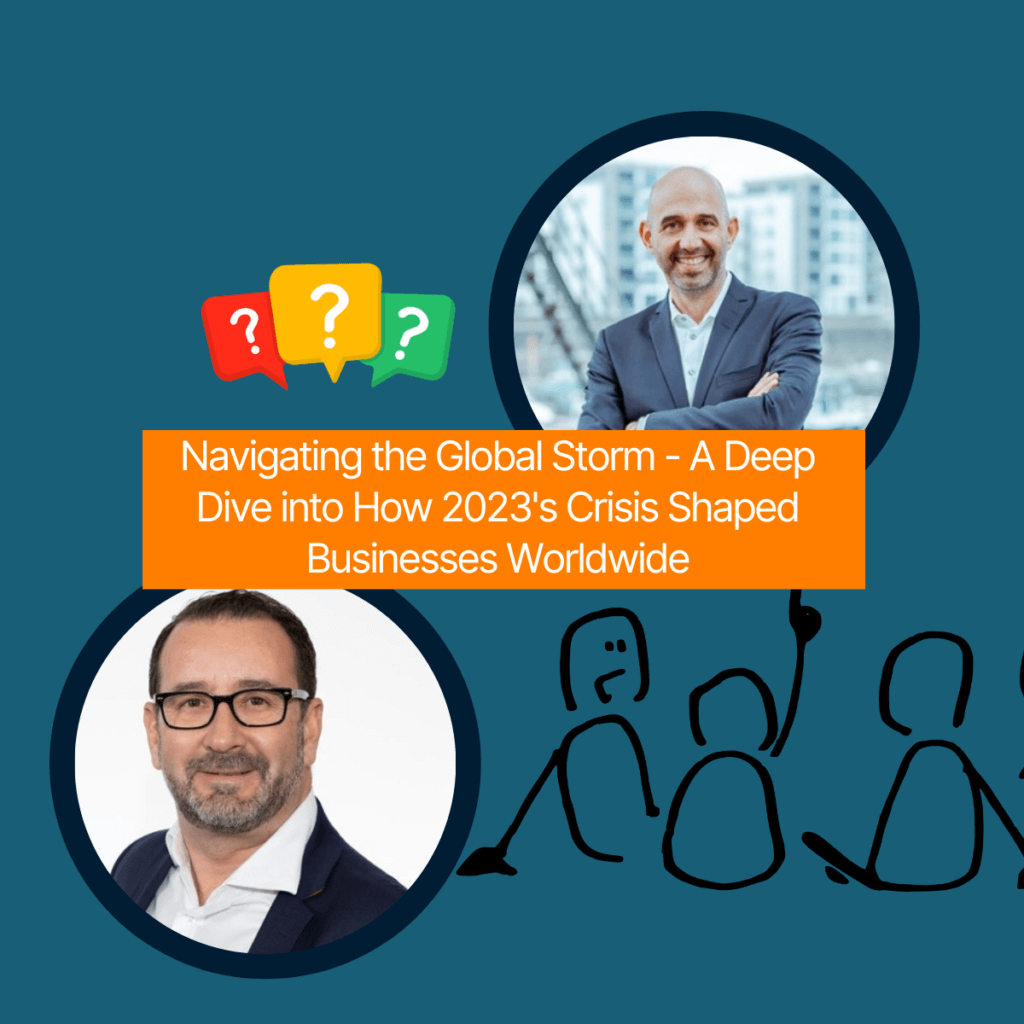
Markus Epner & John Davison
Episode 35: Navigating the Global Storm – A Deep Dive into How 2023’s Crisis Shaped Businesses Worldwide
John est en conversation avec :
Markus Epner – Chef de l’Académie chez F24 AG. Markus possède une grande expérience en matière de sécurité et de gestion de crise. Il a servi en tant qu’officier des forces spéciales pendant les guerres de Bosnie et du Kosovo et a occupé des postes de direction dans le secteur des entreprises pendant plus de vingt ans, principalement chez Lufthansa et Boehringer Ingelheim. Markus est diplômé en gestion de la sécurité et des crises de Kiel et en études sur la sécurité et les crises de l’école administrative de la police du Schleswig-Holstein.
3:00 Not everyone is aware of the Bow-Tie method of risk Analysis
4:12 How much crisis management knowledge should a company have to call itself Crisis ready
10:03 Because it is our last podcast of the year, it’s worth taking a look at the year so far… what has been the most important events this year for you Markus?
17:30 According to the European Climate Monitoring System, 2023 will be the hottest year on record. Last month broke the previous November heat record and increased the global average temperature to 1.46°C
21:53 Experiences from the CSO 360 in Berlin, and ASIS Finland
Episode 36: Cybersecurity in the Courtroom – Legal Challenges in the Digital Realm
Dans l’épisode spécial d’aujourd’hui, Nadia Schaff et Daniel Wildmann, tous deux membres du cabinet d’avocats international Pinsent Masons, aborderont les conséquences juridiques de la gestion des crises liées à la cybernétique. Nadia Schaff conseille des clients allemands et internationaux sur la mise en œuvre des exigences en matière de protection et de sécurité des données, notamment en ce qui concerne les cyberincidents. En outre, Nadia conseille sur des sujets liés au commerce électronique, ce qui implique d’aider les clients à planifier et à mettre en œuvre des projets informatiques, ainsi qu’à rédiger et à négocier des accords de licence de logiciels. Daniel conseille les entreprises nationales et internationales sur la transformation numérique en les accompagnant tout au long de leur parcours, de la numérisation des processus d’entreprise à la mise en œuvre de nouvelles technologies telles que les services de cloud ou de blockchain. Une grande partie du travail de Daniel consiste à conseiller les clients sur la mise en œuvre et l’application des exigences en matière de protection et de sécurité des données, ainsi qu’à soutenir la gestion des cyberincidents.
03:05: When it comes to cyber related crisis incidents, there are several repurcussions that one must consider from a legal perspective. Can you share with us what those considerations are?
05:33 How would you typically expect organizations to fulfil that communication to these third parties?
07:10 In regards to the primary stakeholders, who else needs to be identified in such a crisis?
09:26 How do you think companies can prepare to comply with NIS2 and what are the legal anticipations?
13:26 What about those international organizations that operate beyond the EU and across multiple borders, how does data protection and GDPR applicability take consideration?
16:23 How can clients develop crisis management plans that address the notification obligations across this multiple states and jurisdictions while minimizing the potential conflicts of interest or legal obligations or challenges?
20:28: What have you learned by working in your profession that you may have adopted as a standard working practice either in your personal life or perhaps your professional life?
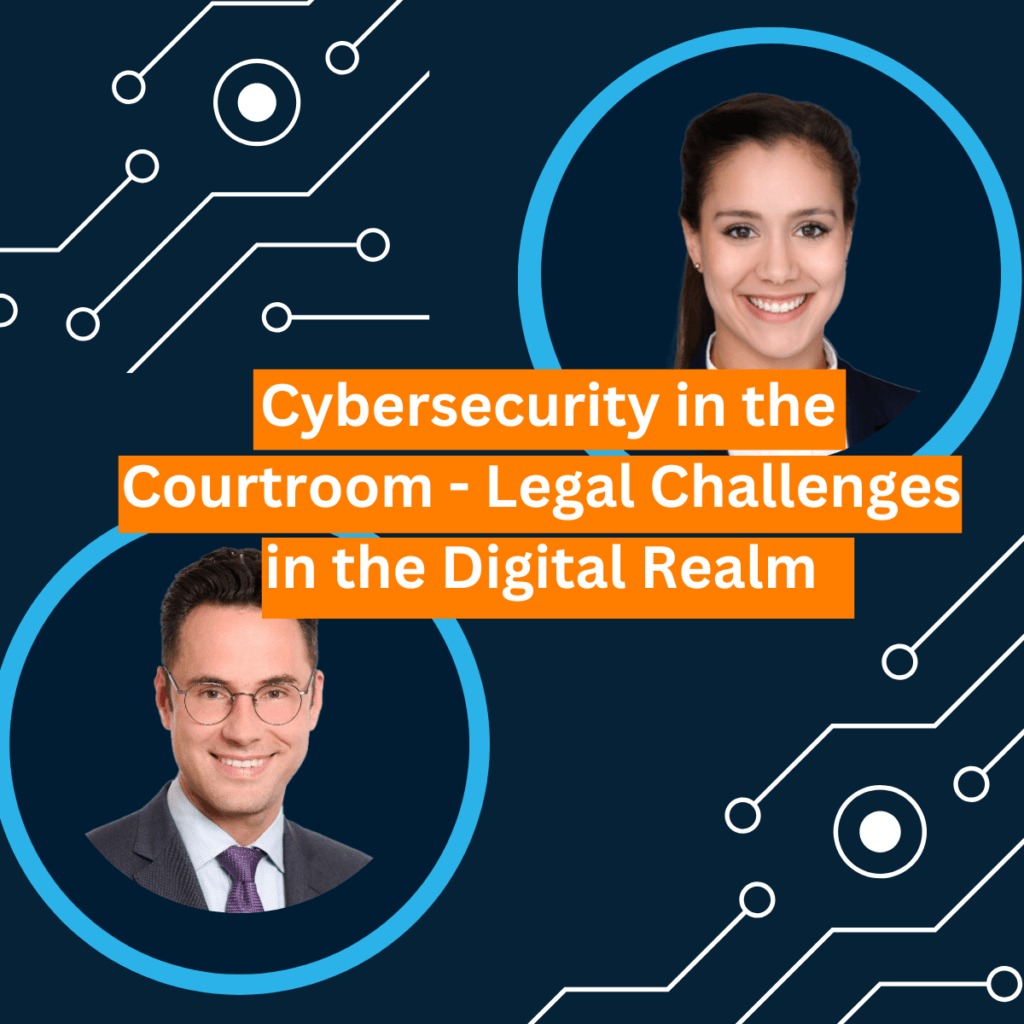
Daniel Widmann & Nadia Schaff
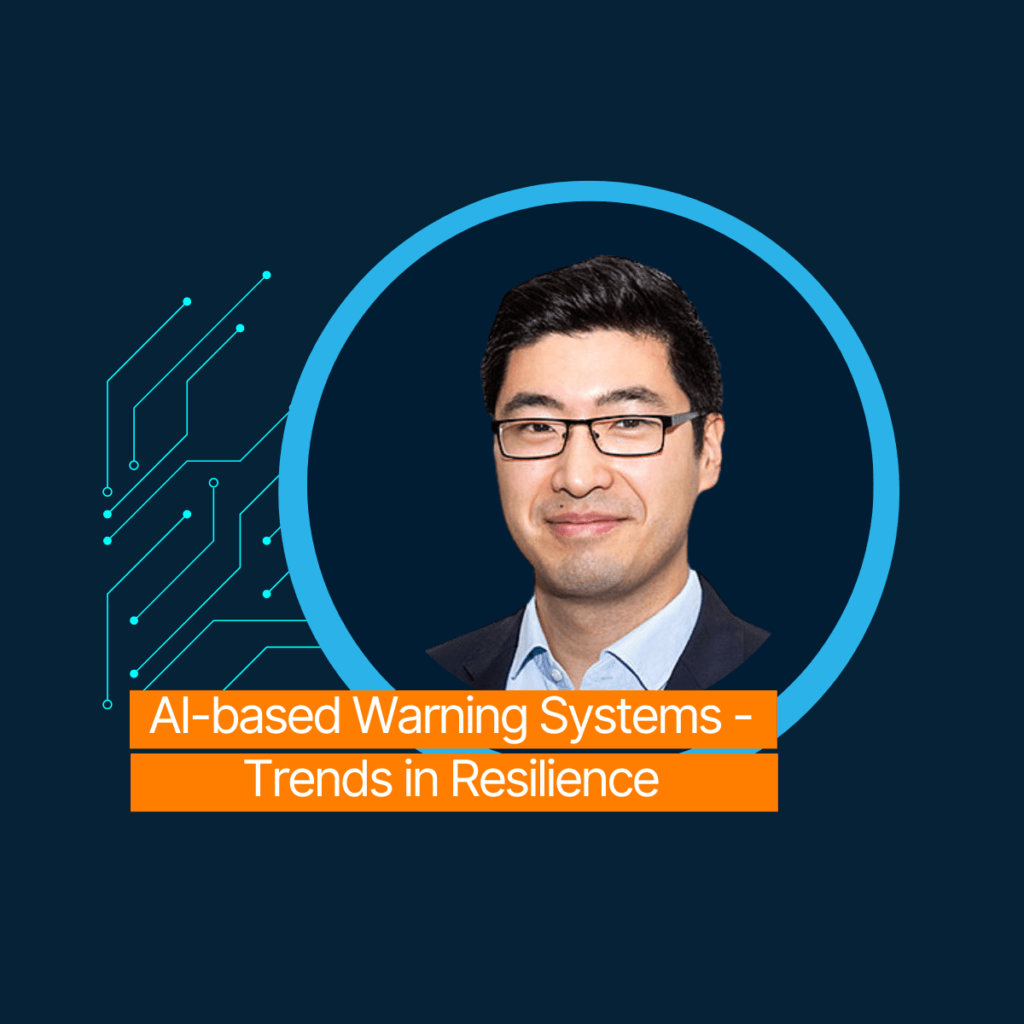
Jackie Ma
Episode 37: AI-based Warning Systems – Trends in Resilience
Jackie Ma est un mathématicien et un chercheur accompli, spécialisé dans l’apprentissage automatique appliqué. Il a obtenu sa maîtrise en sciences et son diplôme de Dr. rer. nat. à l’Université technique de Berlin. Au cours de son parcours universitaire, il a occupé des postes de chercheur invité à l’ETH Zurich, à l’Université de Cambridge et à l’Université de Hong Kong. En 2017, il a rejoint l’Institut Fraunhofer des télécommunications-Institut Heinrich Hertz, où il dirige actuellement le groupe d’apprentissage automatique appliqué.
Actuellement, il dirige un projet sur l’intelligence artificielle, commandé par le ministère fédéral allemand des Affaires économiques et de l’Action pour le climat. Son équipe dirige également plusieurs projets financés par le gouvernement qui explorent les possibilités de l’intelligence artificielle dans les domaines de la gestion des catastrophes naturelles, des soins de santé et des affaires climatiques, etc.
02:32 You have been working on a project that is funded by the German Ministry for Economics and Climate Affairs where you are building an early warning system to support the German economy. Can you please tell us about the role of AI in this project – how AI can help?
04:54 How does this model cater to specific industries or industry specific needs?
06:59 What do think are the opportunities and challenges of an AI based warning system?
09:20 So it looks like AI is going to have a significant role in the Resilience industry – could you please tell us a bit about the current trends and what we can expect in the near future?
11:20 What have you learned by working in your profession that you may have adopted as a standard working practice either in your personal life or perhaps your professional life?
Episode 38: Editing the Narrative – Wikipedia’s Role in Managing Brand Reputation
Rhianon Ruff a plus de 10 ans d’expérience dans l’aide aux entreprises du Fortune 100 pour naviguer sur Wikipédia. Pendant cette période, Rhi a collaboré avec des agences numériques spécialisées, travaillant avec d’innombrables marques et chefs d’entreprise pour mettre à jour leurs entrées Wikipédia conformément aux règles et aux lignes directrices du site. En collaborant avec ses clients, elle a constaté un manque important de connaissances sur le rôle central de Wikipédia dans la protection de la réputation numérique des marques. Elle a donc pris des mesures proactives pour sensibiliser le public à ce sujet crucial, en canalisant son expertise dans des livres perspicaces et en donnant des conférences captivantes sur diverses plateformes.
02:30 Rhi, you are an expert who advises companies on working with Wikipedia. Can you tell our audience a bit about how Wikipedia fits into the scheme of crisis communication?
06:02 What are the common mistakes that you see crisis communication professionals frequently committing when handing Wikipedia?
09:37 I guess a natural follow up of my last question would be – what are the best practices that communication professionals need to adhere to while handling Wikipedia especially in case of a crisis?
12:54 To sum it up, what do you think businesses are missing out on if they don’t include Wikipedia in their crisis management process and what’s a good place to start?
15:58 What have you learnt by working in your profession that you may have adopted as a standard working practice either in your personal life or perhaps your professional life?

Rhianon Ruff
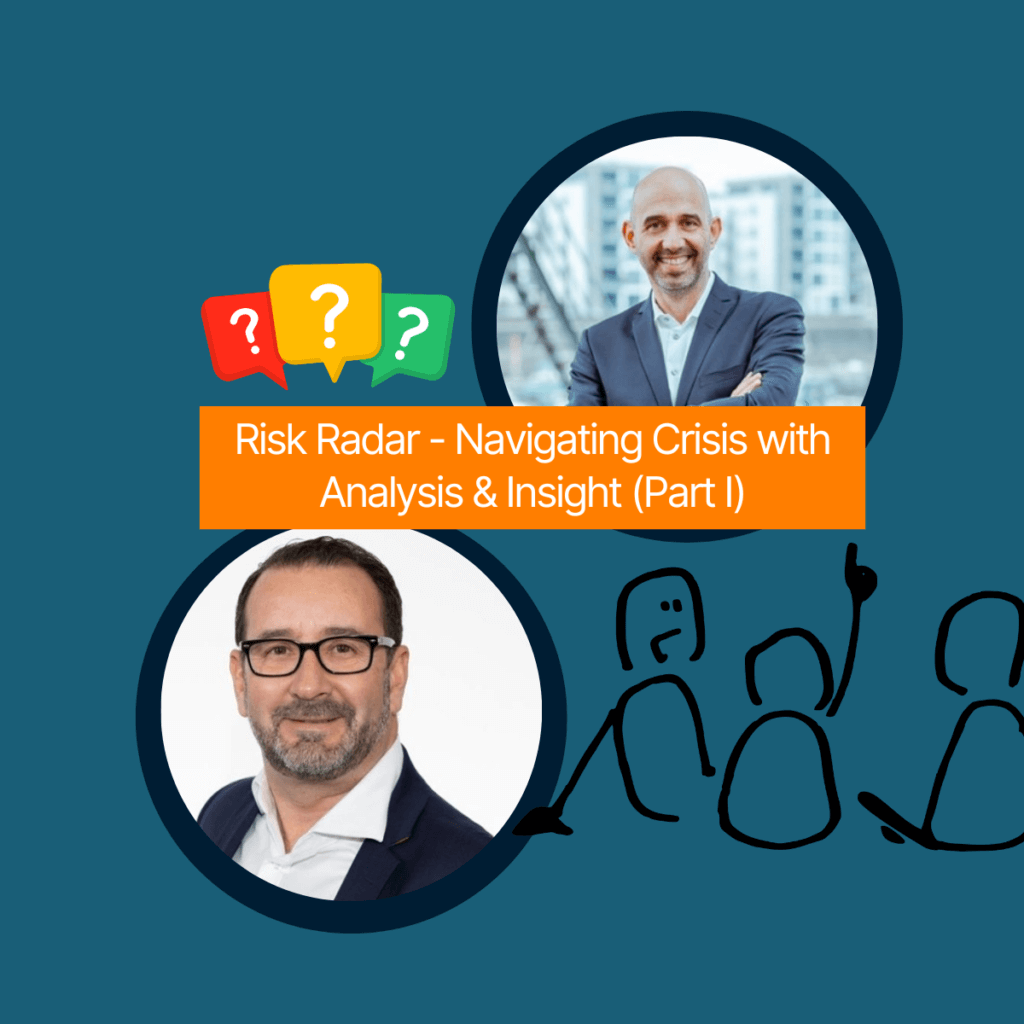
Markus Epner & John Davison
Episode 39: Risk Radar – Navigating Crisis with Analysis & Insight (Part I)
Dans cet épisode, John s’entretient à nouveau avec :
Markus Epner – Chef de l’Académie chez F24 AG. Markus possède une grande expérience en matière de sécurité et de gestion de crise. Il a servi en tant qu’officier des forces spéciales pendant les guerres de Bosnie et du Kosovo et a occupé des postes de direction dans le secteur des entreprises pendant plus de vingt ans, principalement chez Lufthansa et Boehringer Ingelheim. Markus est diplômé en gestion de la sécurité et des crises de Kiel et en études sur la sécurité et les crises de l’école administrative de la police du Schleswig-Holstein.
03:00 Pourquoi un responsable de la résilience ou un gestionnaire de crise qui a déjà effectué une centaine d’heures supplémentaires et qui a dû faire face à de graves problèmes 24 heures sur 24 devrait-il lire un ou plusieurs rapports sur les risques ?
05:29 Je suis curieux de savoir, Markus, en parcourant la montagne de pages, quels sont les rapports sur les risques que vous avez lus et pourquoi ils sont importants ?
08:30 Ces rapports nous aident à affiner nos capacités de prise de décision et à renforcer la résilience de notre organisation.
10:24 La cybersécurité et la protection des données occuperont le devant de la scène, tout comme l’importance de la gestion des talents, l’adaptation au changement climatique, les risques liés à la chaîne d’approvisionnement et la nécessité d’une stratégie globale et flexible de gestion des risques.
15:05 C’est un exemple vraiment impressionnant de la façon dont un conflit régional peut avoir un impact global sur tous les continents.
Episode 40: Risk Radar – Navigating Crisis with Analysis & Insight (Part II)
Dans la deuxième partie de l’épisode, John s’entretient avec :
Markus Epner – Chef de l’Académie chez F24 AG. Markus possède une grande expérience en matière de sécurité et de gestion de crise. Il a servi en tant qu’officier des forces spéciales pendant les guerres de Bosnie et du Kosovo et a occupé des postes de direction dans le secteur des entreprises pendant plus de vingt ans, principalement chez Lufthansa et Boehringer Ingelheim. Markus est diplômé en gestion de la sécurité et des crises de Kiel et en études sur la sécurité et les crises de l’école administrative de la police du Schleswig-Holstein.
02:40: Just reading the risk reports isn’t enough, if you haven’t adjusted yours processes, your crisis management plans, yours BCM plans, you haven’t finished the job
06:10 Can you remember our first podcast episode together, where we spoke about virtual crisis management… the pros and cons of it?
08:41 London Stansted airport hosted the F24 Aviation Day this year and they gave a particularly impressive presentation on operational resilience and how they use F24’s CIM
To access the insights from the F24 Aviation Experience Day in London, click here: F24 Aviation Experience Day – F24

Markus Epner & John Davison

Markus Epner & Philippe Quevauviller
Episode 41: Building Resilient Societies – Preparedness & Innovation (Part I)
Alessandro Lazari, expert en protection des infrastructures critiques, en résilience et en cybersécurité, et ancien responsable scientifique au Centre Commun de Recherche de la Commission européenne, est en conversation avec :
Philippe Quevauviller, qui compte plus de trois décennies de service dévoué à la Commission européenne. Il est chargé de politiques et a joué un rôle essentiel dans l’élaboration et l’avancement des politiques liées à la sécurité, à la gestion des crises et à la réponse aux catastrophes.
Fort d’une vaste expérience dans divers secteurs et d’une compréhension approfondie des subtilités politiques, Philippe demeure une force motrice dans l’élaboration de l’approche européenne en matière de sécurité et de gestion des crises.
02:52 Parlons du risque de catastrophes et des sociétés résilientes à l’heure actuelle. Quelle est l’importance de se préparer et comment l’UE souhaite-t-elle atteindre ces objectifs ?
06:12 La DG Home, parmi d’autres initiatives, dirige le CERIS (Communauté pour la Recherche et l’Innovation Européenne en matière de Sécurité). Pouvez-vous nous parler de cette initiative et du rôle de la recherche dans la réalisation de la sécurité et de la résilience ?
08:57 Nous devons ouvrir nos compétences et reconnaître que nous devons apprendre les uns des autres.
11:08 La plupart des décisions importantes ont été prises le soir, lorsque nous étions enfin détendus.
11:37 Lorsque vous parlez de résilience, surtout ces dernières années, prenez-vous également en compte le changement climatique ?
Episode 42: Building Resilient Societies – Preparedness & Innovation (Part II)
Alessandro Lazari, expert en protection des infrastructures critiques, résilience et cybersécurité et ancien responsable scientifique au Centre commun de recherche de la Commission européenne, s’entretient avec:
Philippe Quevauviller, qui a passé plus de trois décennies au service de la Commission européenne. Chargé de mission, il a joué un rôle essentiel dans l’élaboration et l’avancement des politiques liées à la sécurité, à la gestion des crises et à la réaction aux catastrophes.
Fort d’une riche expérience dans différents secteurs et d’une connaissance approfondie des subtilités politiques, Philippe continue à jouer un rôle moteur dans l’élaboration de l’approche de l’Europe en matière de sécurité et de gestion des crises.
01:37 Les régions méditerranéennes sont connues pour leurs inondations et leurs sécheresses. Mais aujourd’hui, avec le changement climatique, ce type d’événements méditerranéens arrive au nord.
03:15 À propos de la résilience des communautés en général, quels seront, selon vous, les principaux défis à relever pour renforcer la résilience au cours des dix prochaines années ?
08:00 J’essaie de plaider en faveur d’un changement de paradigme dans la gestion des crises.
08:28 Qu’avez-vous appris en travaillant dans votre profession et que vous avez peut-être adopté comme pratique de travail standard, que ce soit dans votre vie personnelle ou dans votre vie professionnelle ?

Alessandro & Philippe
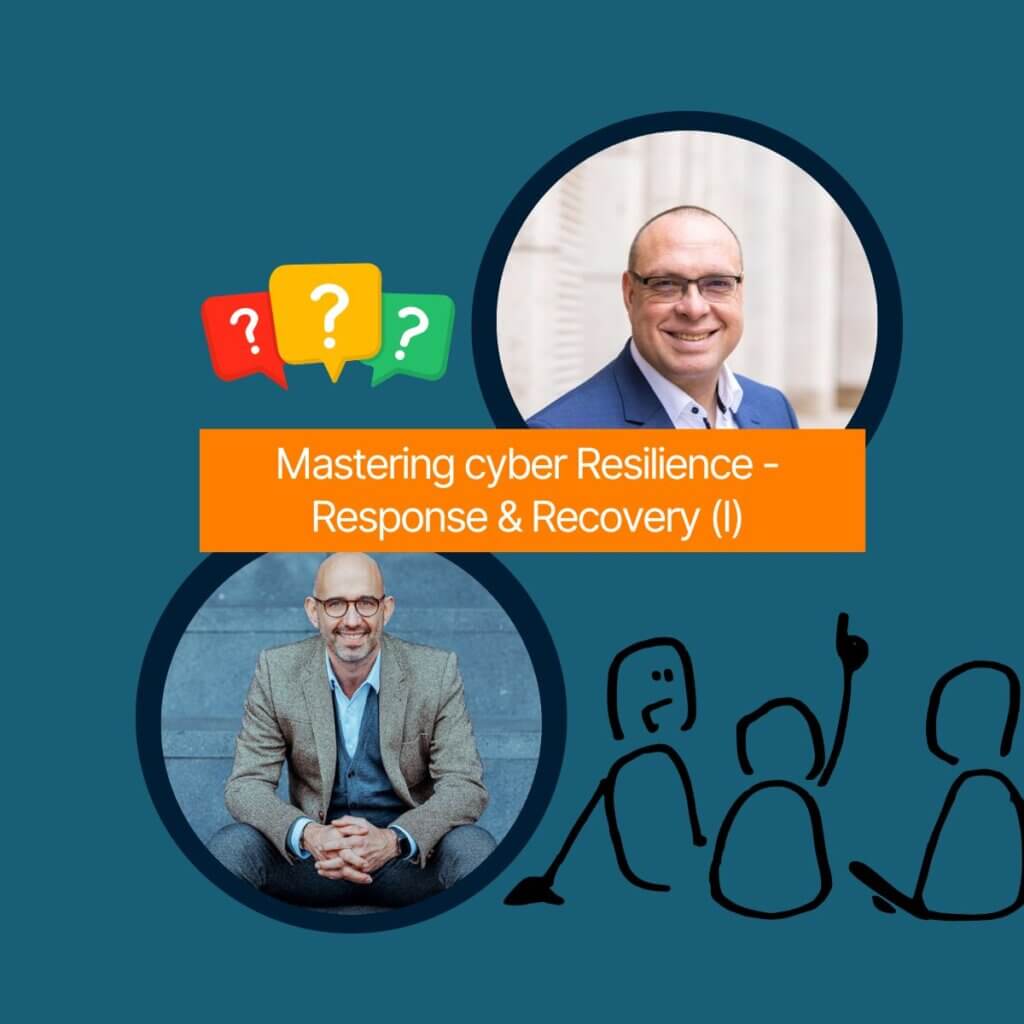
Markus and Lorenz
Episode 43: Mastering Cyber Resilience – Response & Recovery (Part I)
Markus Epner – Chef de l’Académie chez F24 AG. Markus possède une grande expérience en matière de sécurité et de gestion de crise. Dans cet épisode, il s’entretient avec –
Lorenz Kuhlee, un professionnel de la sécurité informatique très expérimenté qui travaille au sein de l’équipe Risque et Réglementation de PwC en Allemagne. Il est spécialisé dans les enquêtes sur les violations de données à grande échelle, la réponse aux cyberincidents et la criminalistique numérique. Chez PwC, Lorenz dirige des équipes techniques dans le cadre d’affaires complexes et apporte son expertise en matière de gestion de projets, en particulier dans le domaine de la criminalistique numérique et de la réponse aux incidents (DFIR).
En plus de son travail chez PwC, Lorenz est le co-auteur de Computer Forensics Hacks, un recueil pratique de méthodes, de conseils et d’astuces en matière de criminalistique informatique.
03:30 Si vous pouviez décrire un cyberincident en trois mots, quels seraient-ils ?
06:30 Il n’y a que trois façons de compromettre votre réseau informatique.
12:48 D’après votre expérience, quel est l’aspect le plus critique de la préparation d’une entreprise à l’engagement d’une équipe CERT lors d’un incident ?
16:31 Je dis toujours que je peux former chaque entreprise pour qu’elle devienne comme James Bond, 007 – mais cela a aussi quelque chose à voir avec la culture et l’ADN de l’entreprise.
17:19 Comment une équipe CERT fonctionne-t-elle et collabore-t-elle pendant un incident ?
Episode 44: Mastering Cyber Resilience – Response & Recovery (Part II)
Markus Epner – Chef de l’Académie chez F24 AG. Markus possède une grande expérience en matière de sécurité et de gestion de crise. Dans cet épisode, il s’entretient avec –
Lorenz Kuhlee, un professionnel de la sécurité informatique très expérimenté qui travaille au sein de l’équipe Risque et Réglementation de PwC en Allemagne. Il est spécialisé dans les enquêtes sur les violations de données à grande échelle, la réponse aux cyberincidents et la criminalistique numérique. Chez PwC, Lorenz dirige des équipes techniques dans le cadre d’affaires complexes et apporte son expertise en matière de gestion de projets, en particulier dans le domaine de la criminalistique numérique et de la réponse aux incidents (DFIR).
En plus de son travail chez PwC, Lorenz est le co-auteur de Computer Forensics Hacks, un recueil pratique de méthodes, de conseils et d’astuces en matière de criminalistique informatique.
02:30 Comment les entreprises doivent-elles communiquer en interne au début d’une crise ou d’un incident ?
03:53 Que se passe-t-il si l’ensemble du système est compromis et qu’il n’existe pas de canaux redondants pour la communication de crise ?
07:40 Qu’est-ce qui pourrait aggraver la situation ?
11:34 Faut-il appeler la police ou cela va-t-il aggraver la situation ?
15:35 Communiquer avec l’attaquant – Suis-je autorisé à parler au cybercriminel ?

Markus & Lorenz

Markus and Lorenz
Episode 45: Mastering Cyber Resilience – Response & Recovery (Part III)
Markus Epner – Chef de l’Académie chez F24 AG. Markus possède une grande expérience en matière de sécurité et de gestion de crise. Dans cet épisode, il s’entretient avec –
Lorenz Kuhlee, un professionnel de la sécurité informatique très expérimenté qui travaille au sein de l’équipe Risque et Réglementation de PwC en Allemagne. Il est spécialisé dans les enquêtes sur les violations de données à grande échelle, la réponse aux cyberincidents et la criminalistique numérique. Chez PwC, Lorenz dirige des équipes techniques dans le cadre d’affaires complexes et apporte son expertise en matière de gestion de projets, en particulier dans le domaine de la criminalistique numérique et de la réponse aux incidents (DFIR).
En plus de son travail chez PwC, Lorenz est le co-auteur de Computer Forensics Hacks, un recueil pratique de méthodes, de conseils et d’astuces en matière de criminalistique informatique.
01:14 Une fois votre équipe activée, quelles sont les principales phases et actions nécessaires pour atténuer la situation ?
02:59 En cas d’attaque par ransomeware, l’entreprise doit-elle payer ou non ?
09:46 Comment vous assurez-vous que vos mesures d’endiguement n’interfèrent pas avec les activités courantes de l’entreprise ?
15:00 Les criminels suivent-ils une sorte de SOP interne lorsqu’ils attaquent une entreprise ?
18:00 Quelles mesures les entreprises devraient-elles prendre pour s’assurer qu’elles sont bien préparées contre une cyberattaque ?
Episode 46: Navigating Turbulence – Building Resilience in the Aviation Industry (Part I)
Dans cet épisode, John s’entretient avec Richard Drennan, responsable de la continuité des activités et de la réponse aux crises chez flydubai. Il a commencé sa carrière dans l’aviation au sol avec Menzies Aviation avant d’occuper des postes au sein de Titan Airways et British Airways au Royaume-Uni. En 2014, il a rejoint flydubai au sein de leur centre de contrôle du réseau après sa discipline d’origine de contrôle des opérations/répartition des vols. Depuis lors, il a progressé et occupé des postes dans les services aéroportuaires et la sécurité avant d’être chargé de diriger la continuité des activités et la réponse aux urgences pour l’organisation.
Outre ces fonctions, Rick occupe le poste de directeur des interventions d’urgence et est membre du groupe d’évaluation des menaces de l’entreprise.
03:34 The most dreadful floods that occurred last year, April 17th, 2024 in Dubai. How was flydubai affected?
07:46 In a way did we contribute to an overloaded system?10:23 There wasn’t necessarily a model set for this… We suspended our operations and activated our crisis management centre.
12:30 How did you use the plans and checklists? How did they work for you? What were the lessons learnt?
16:00 It’s not like volunteers dont get paid because they are worthless, but because they are priceless.

John & Rick